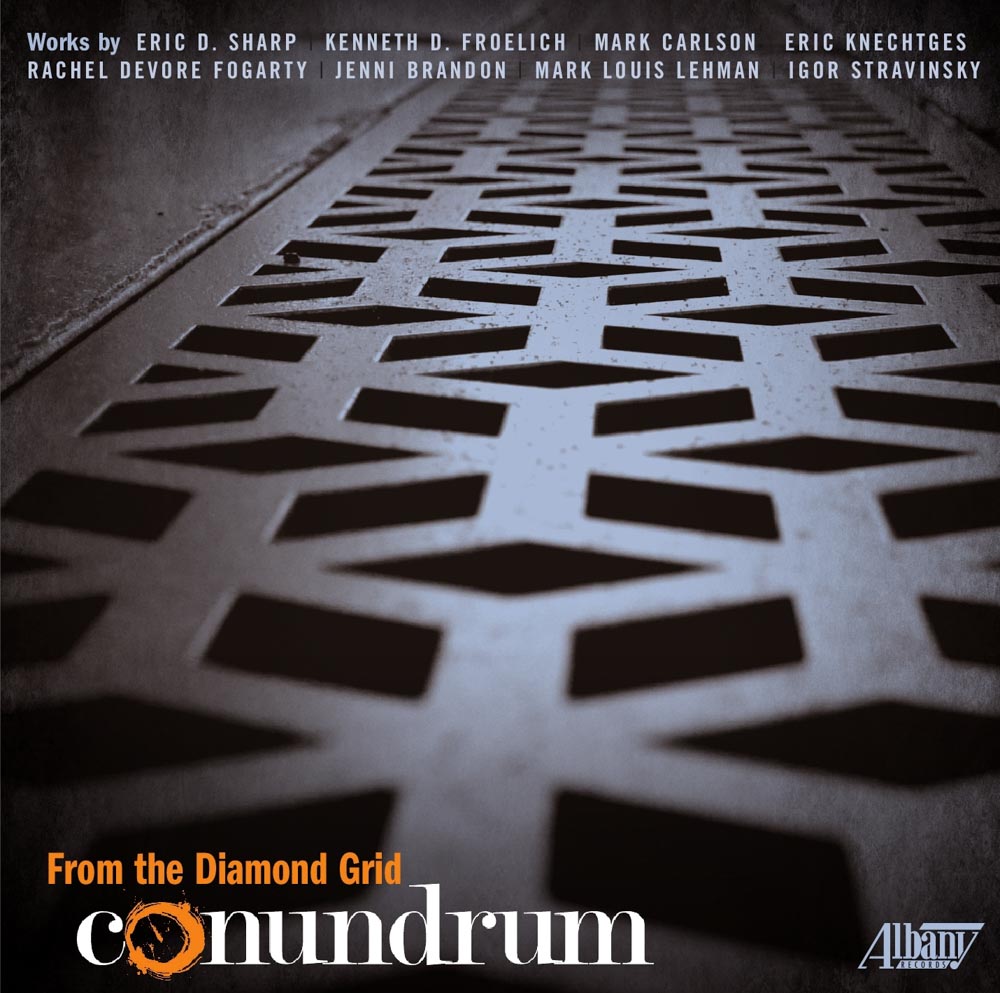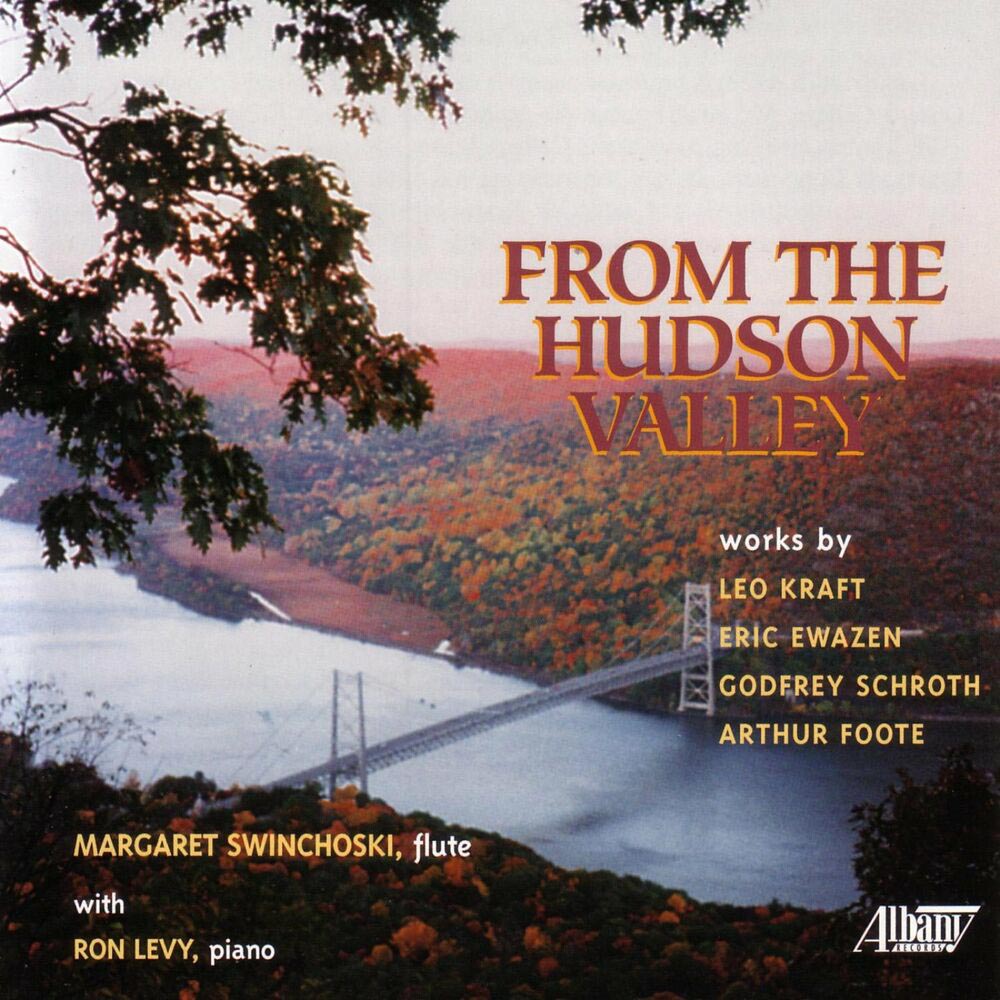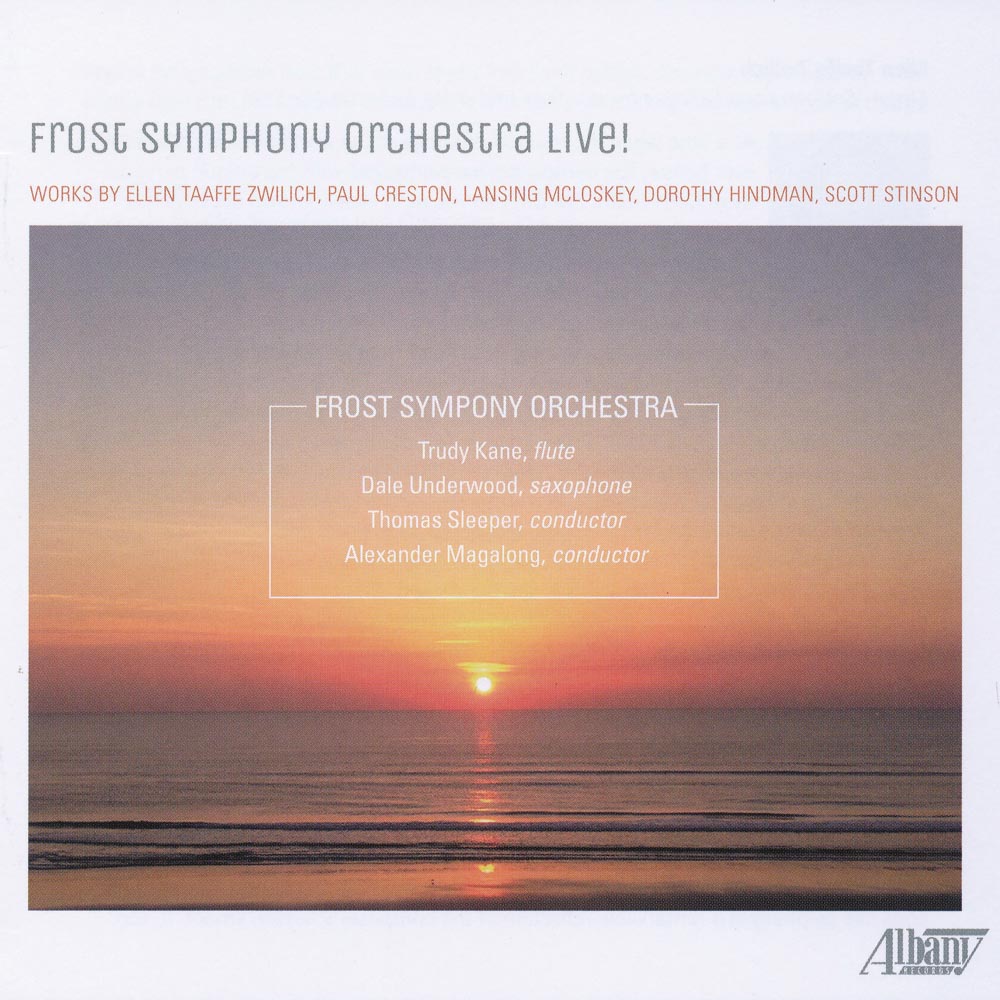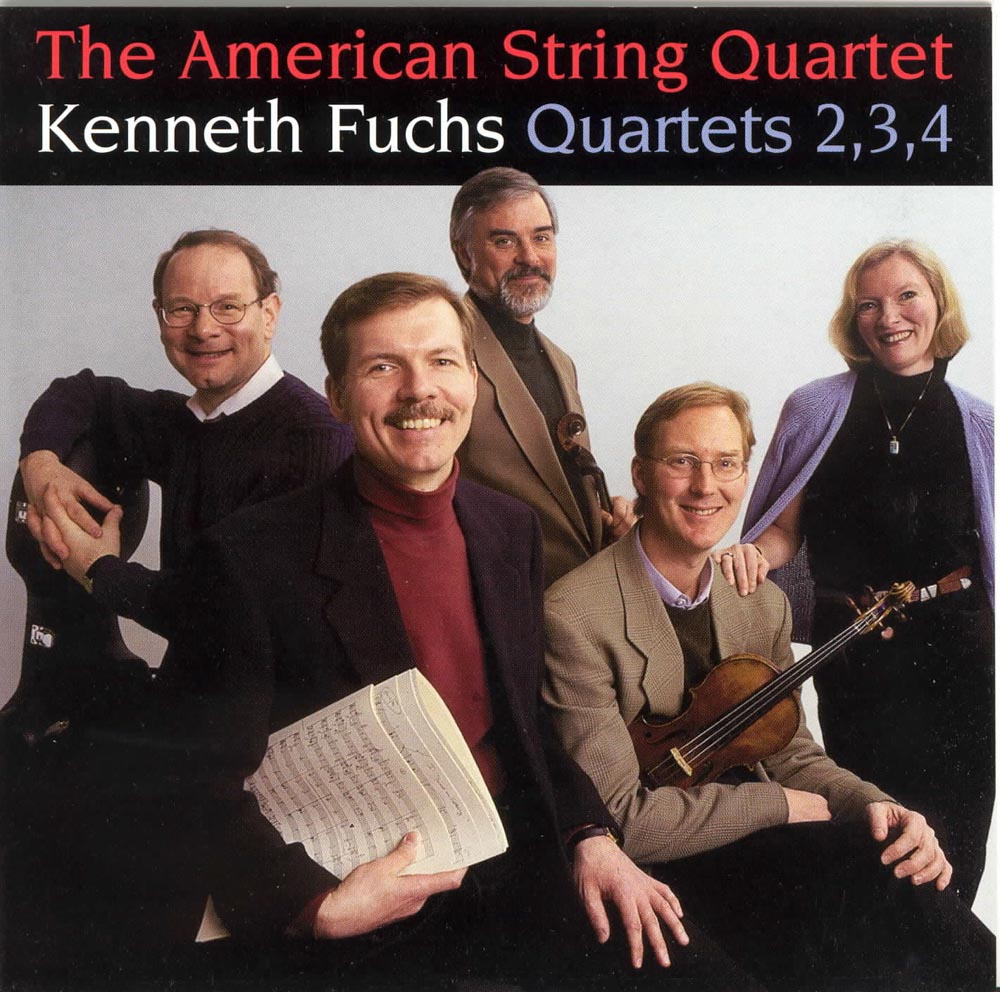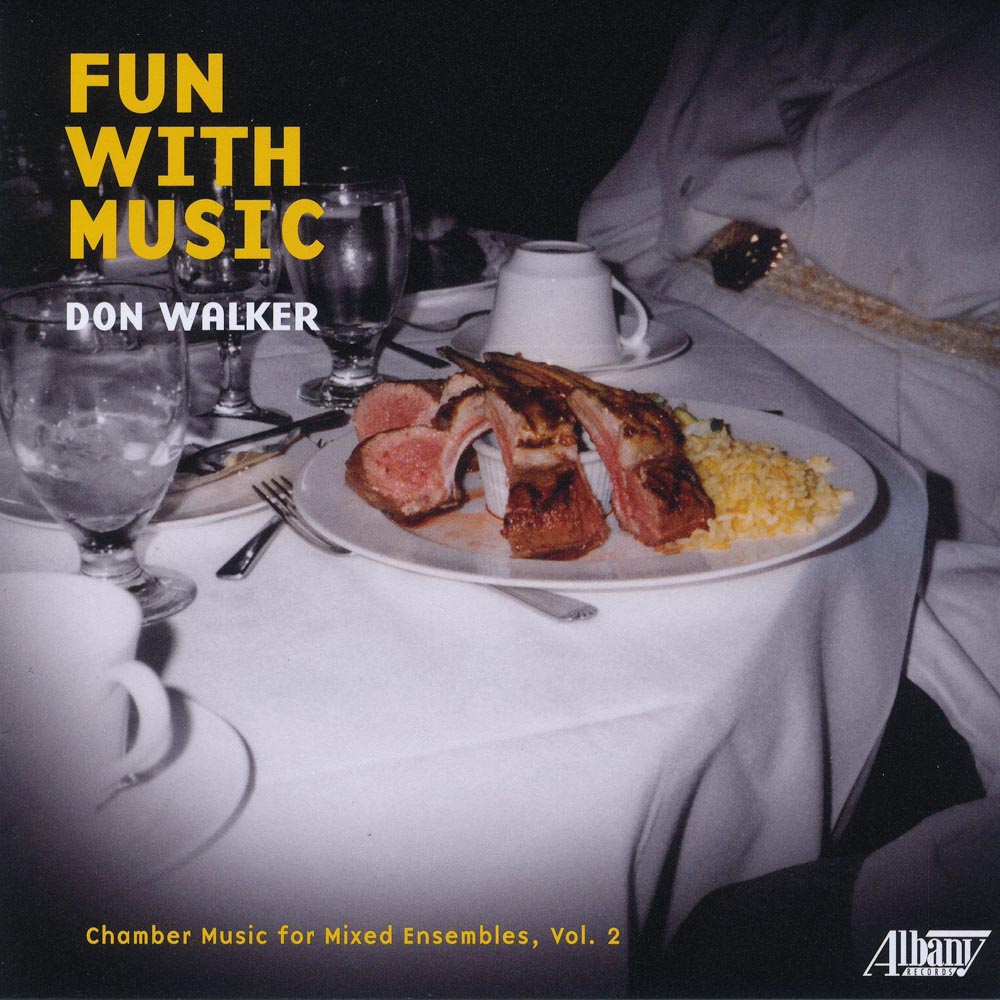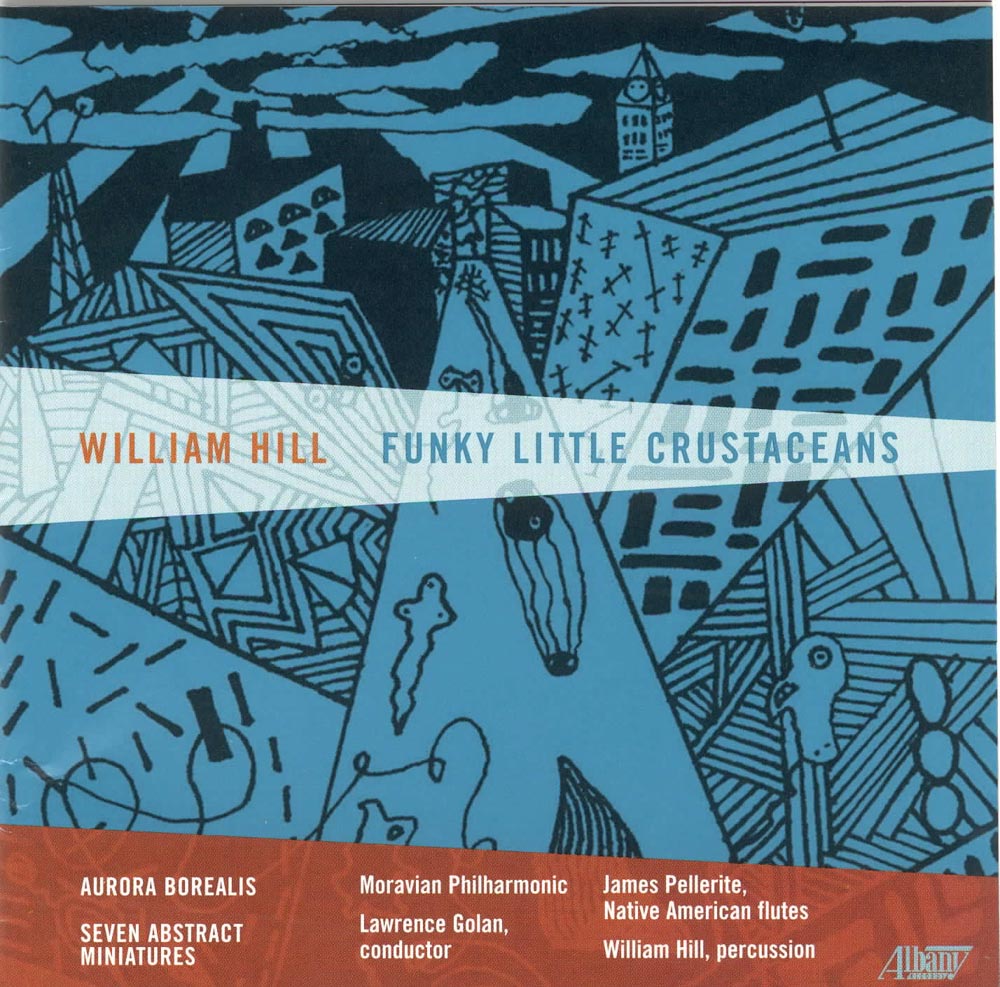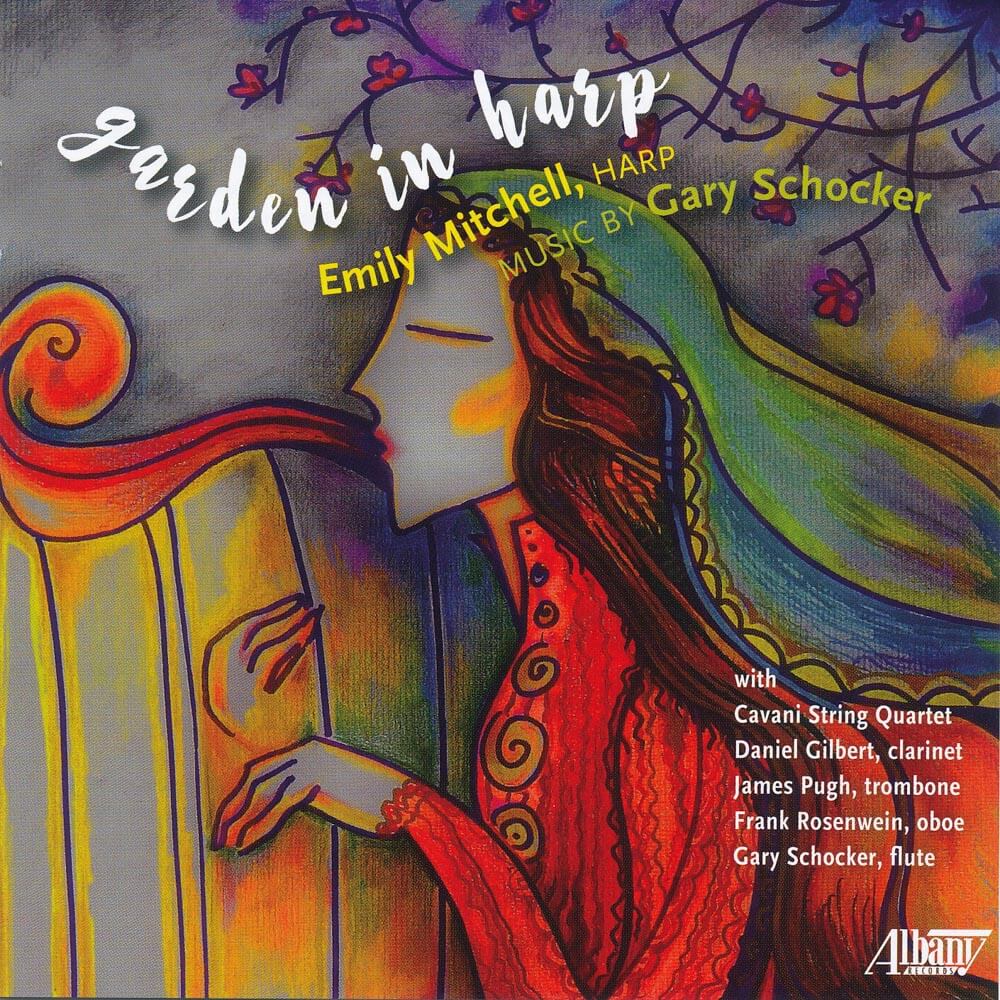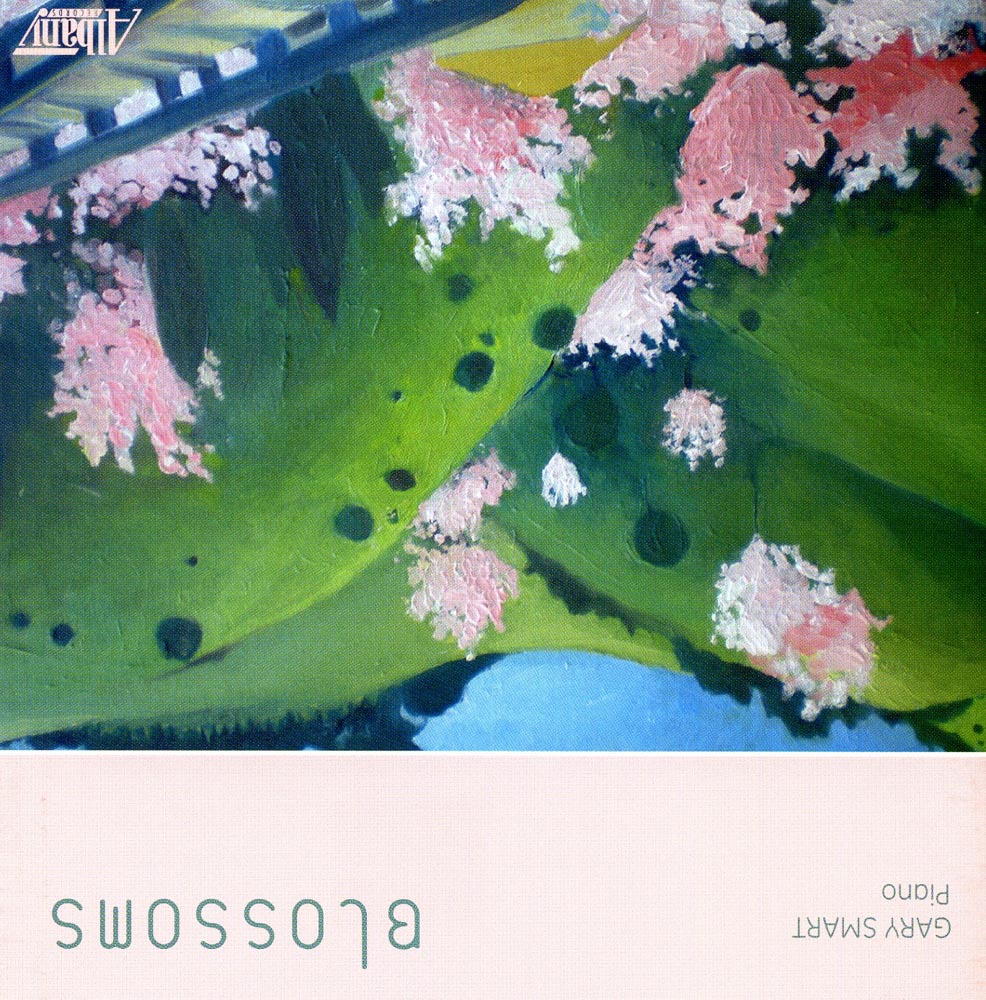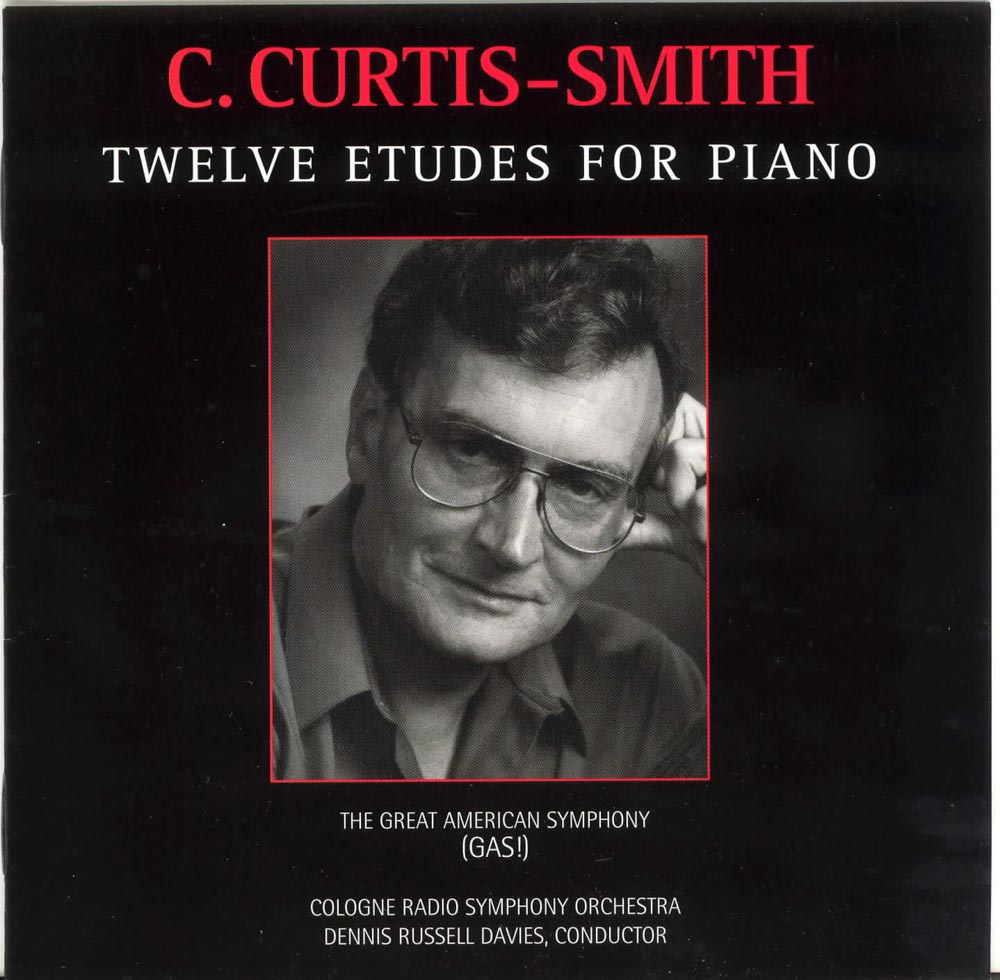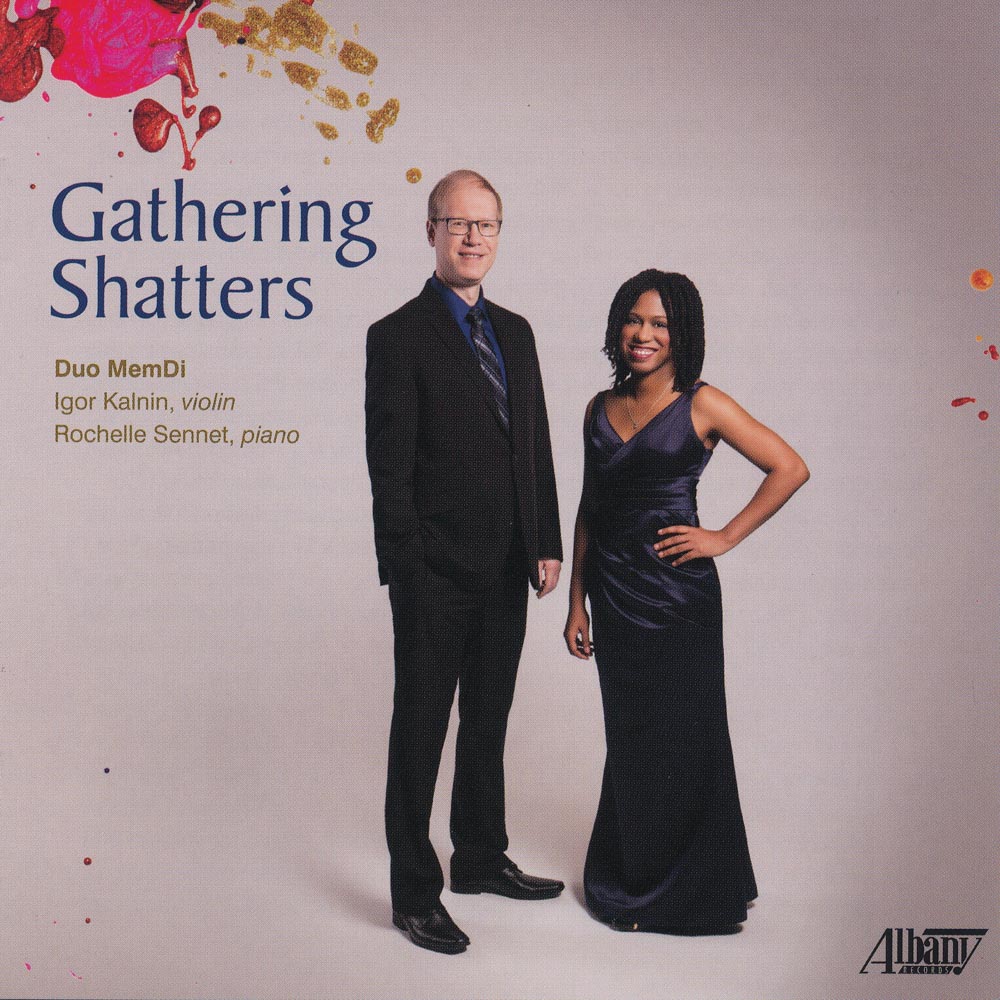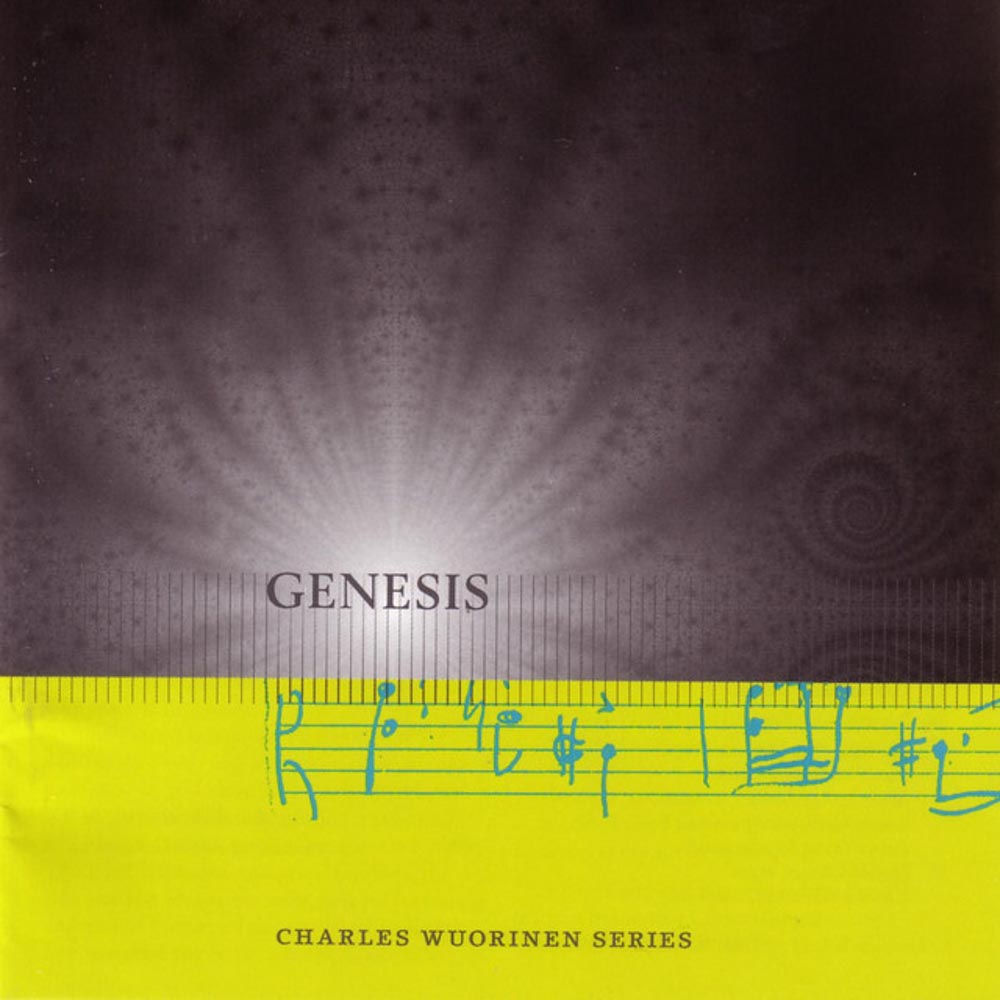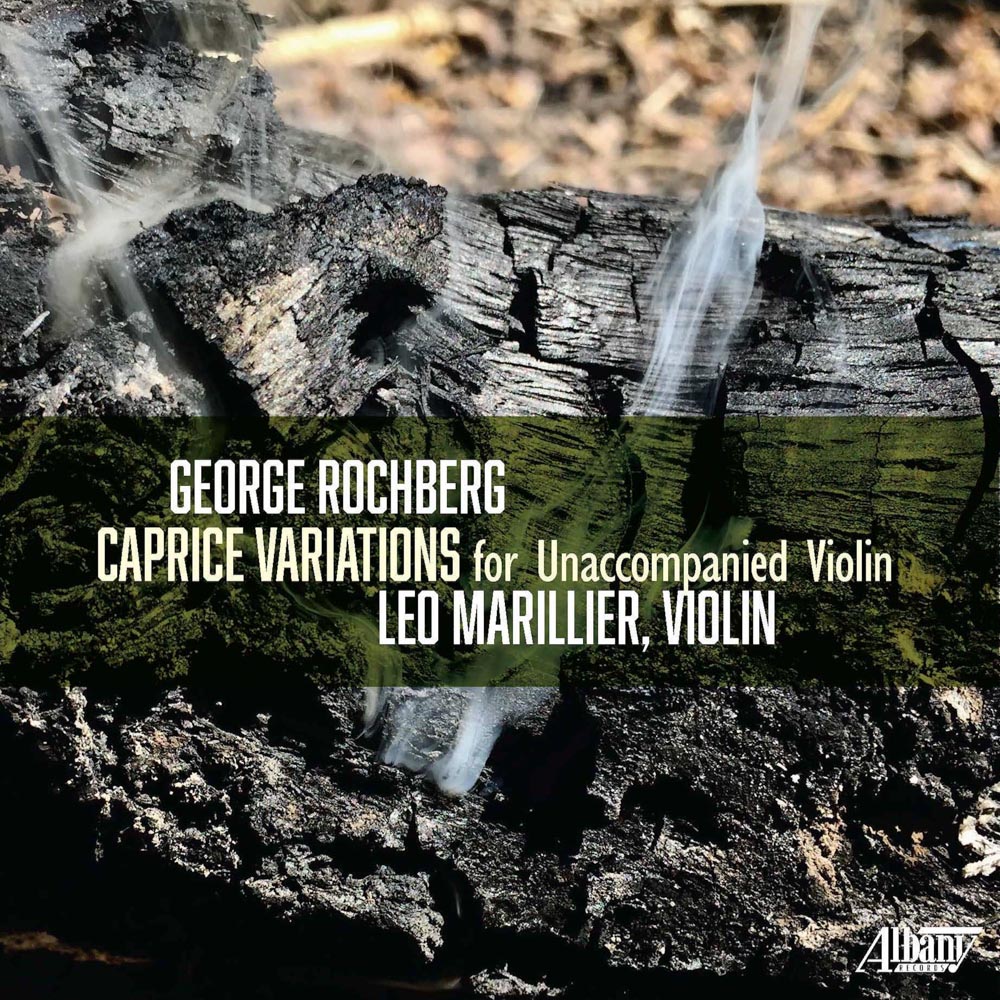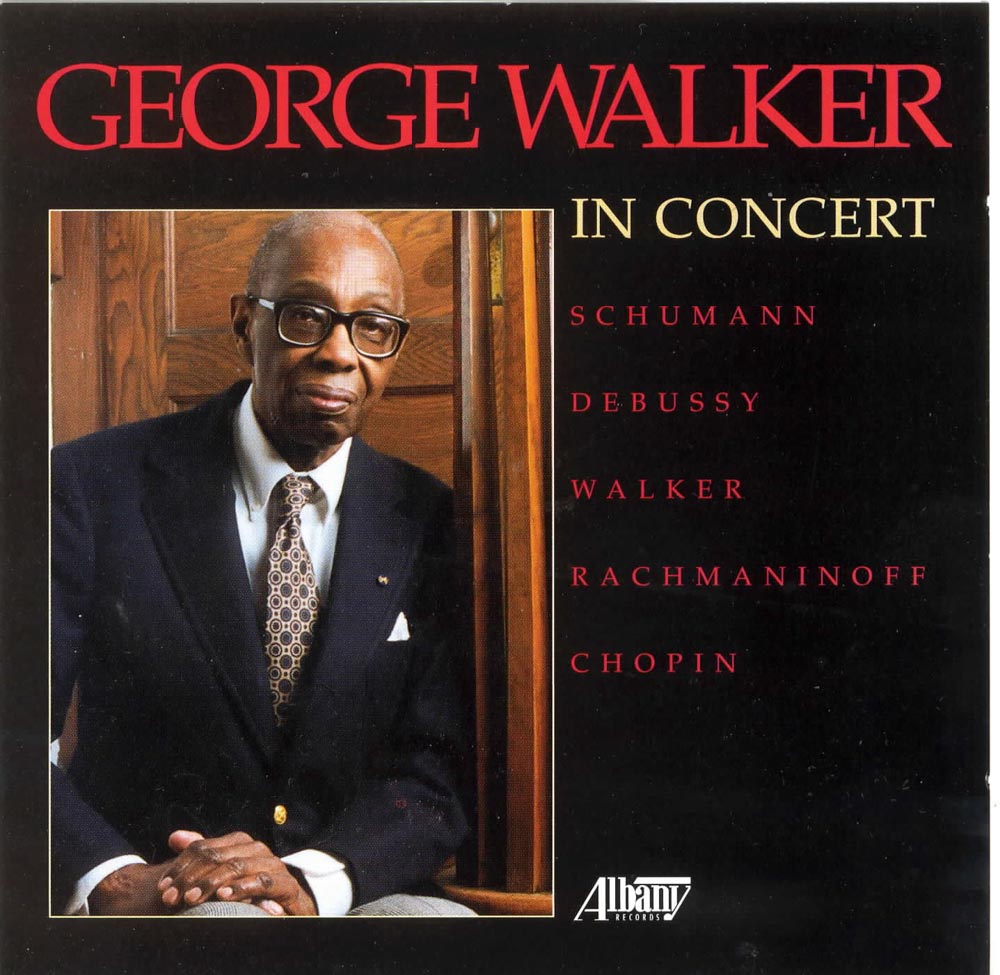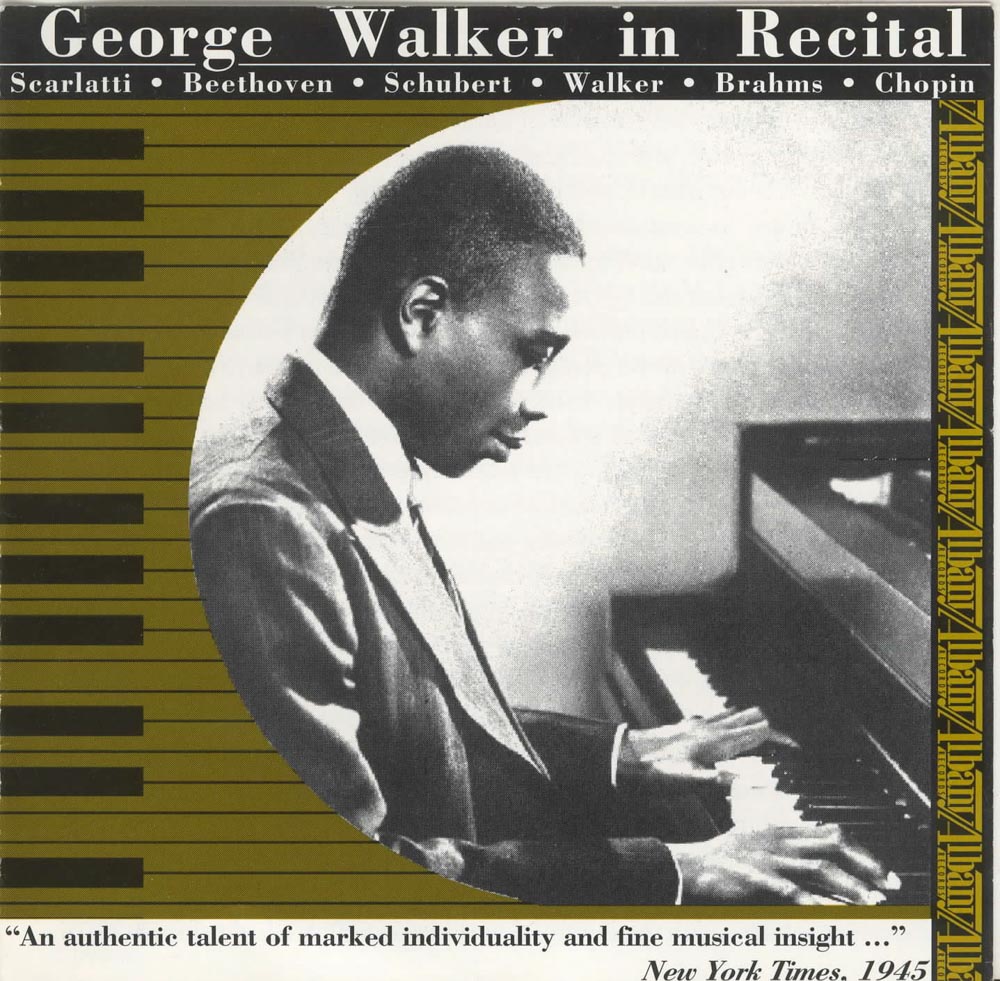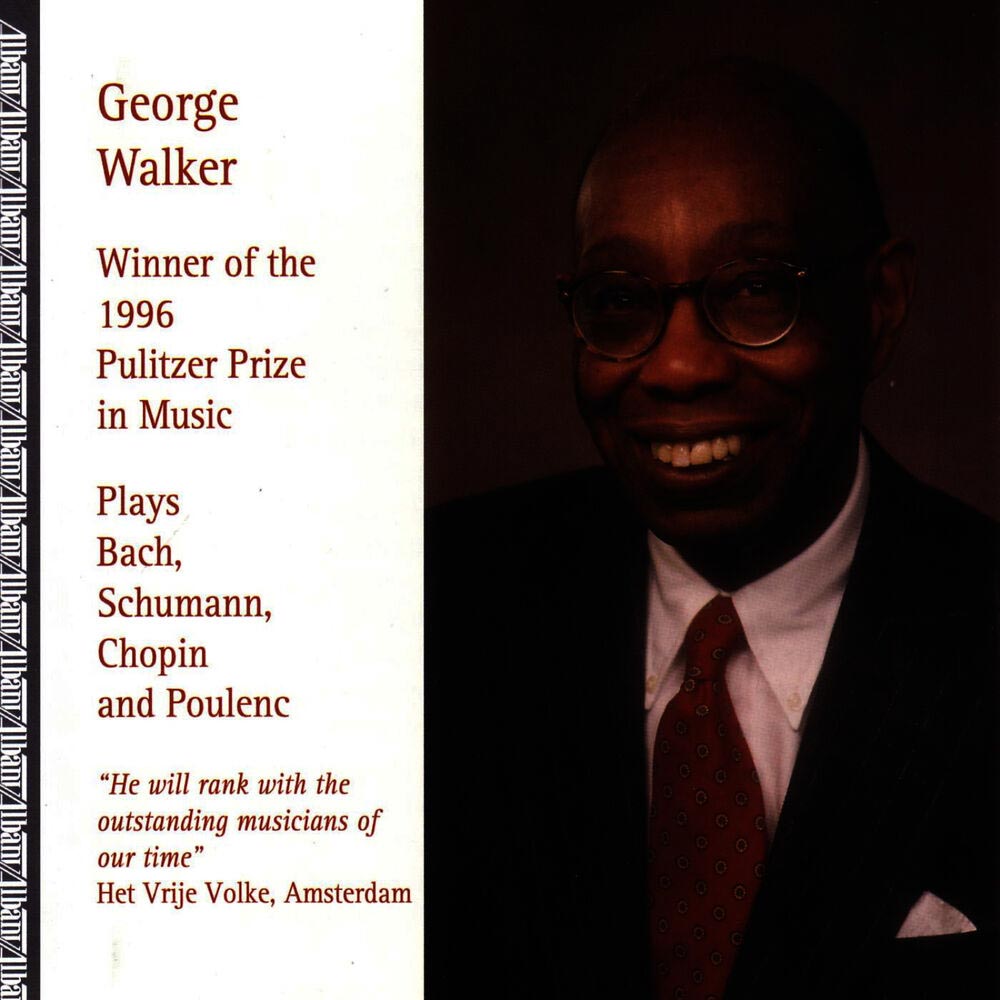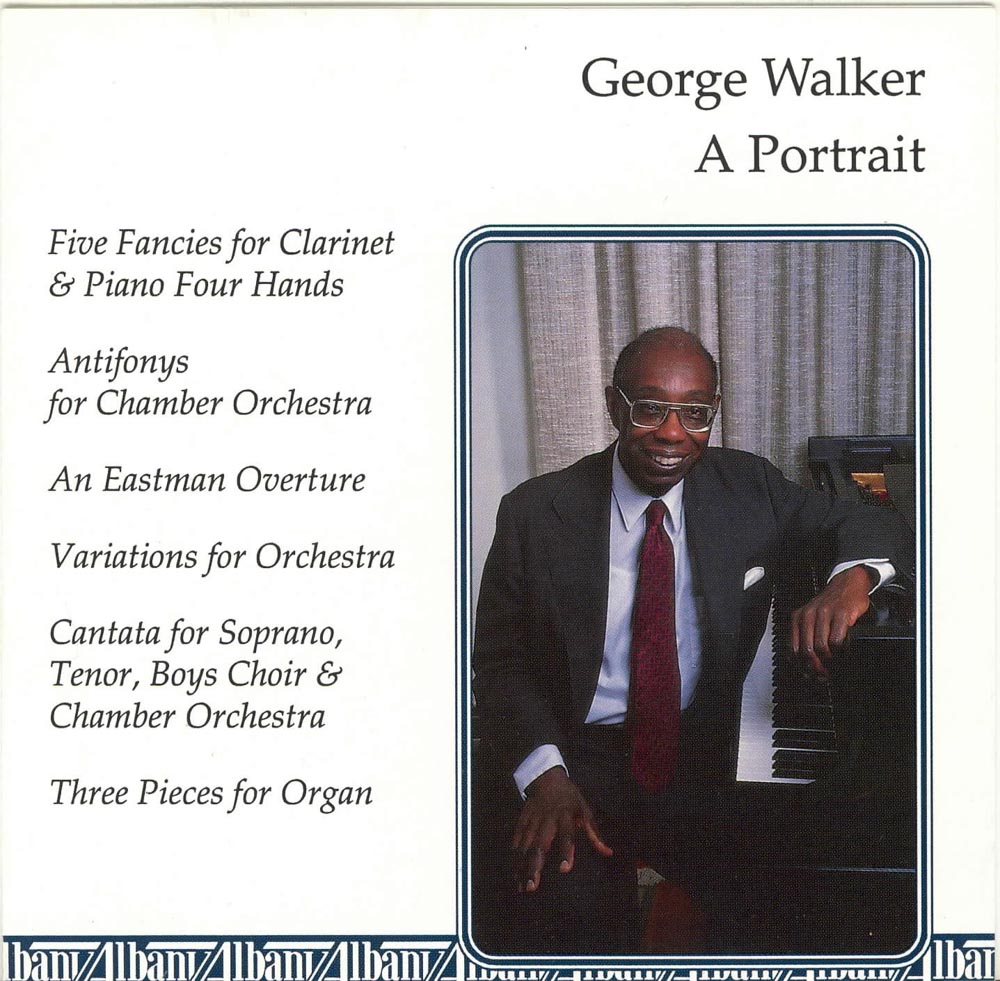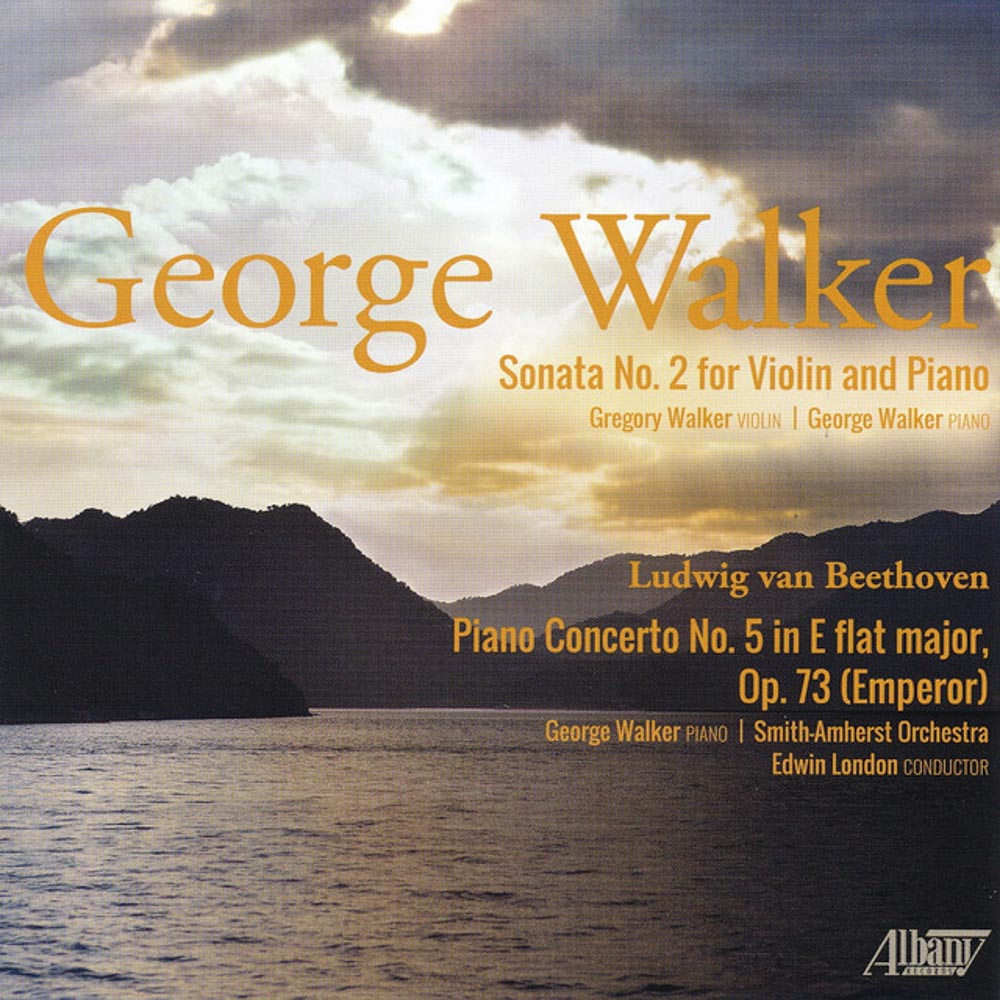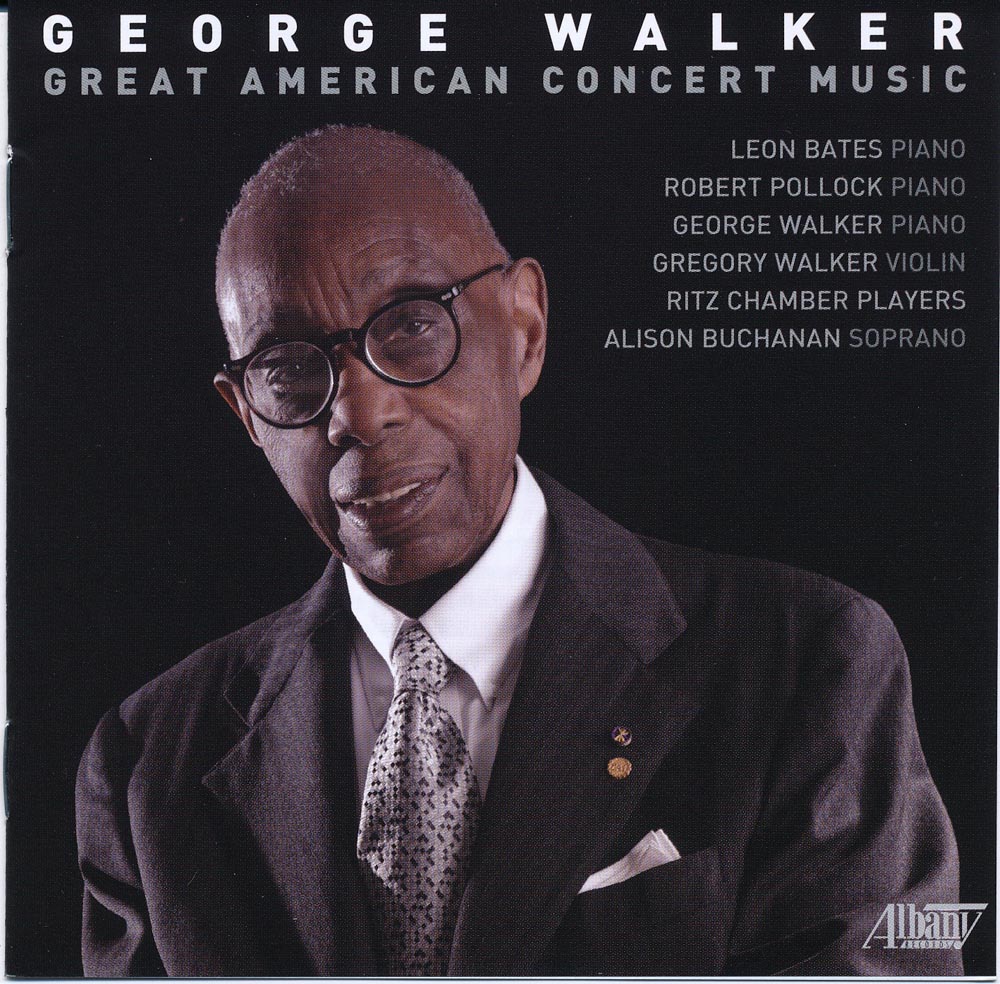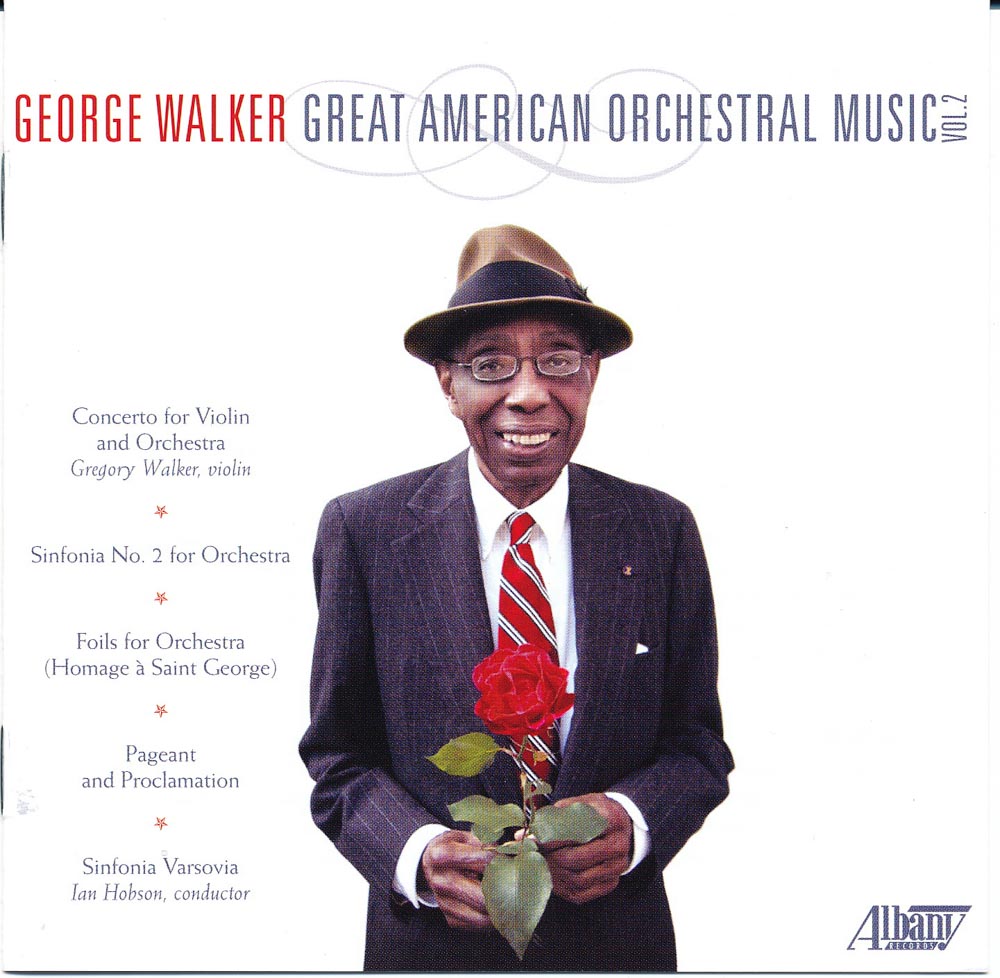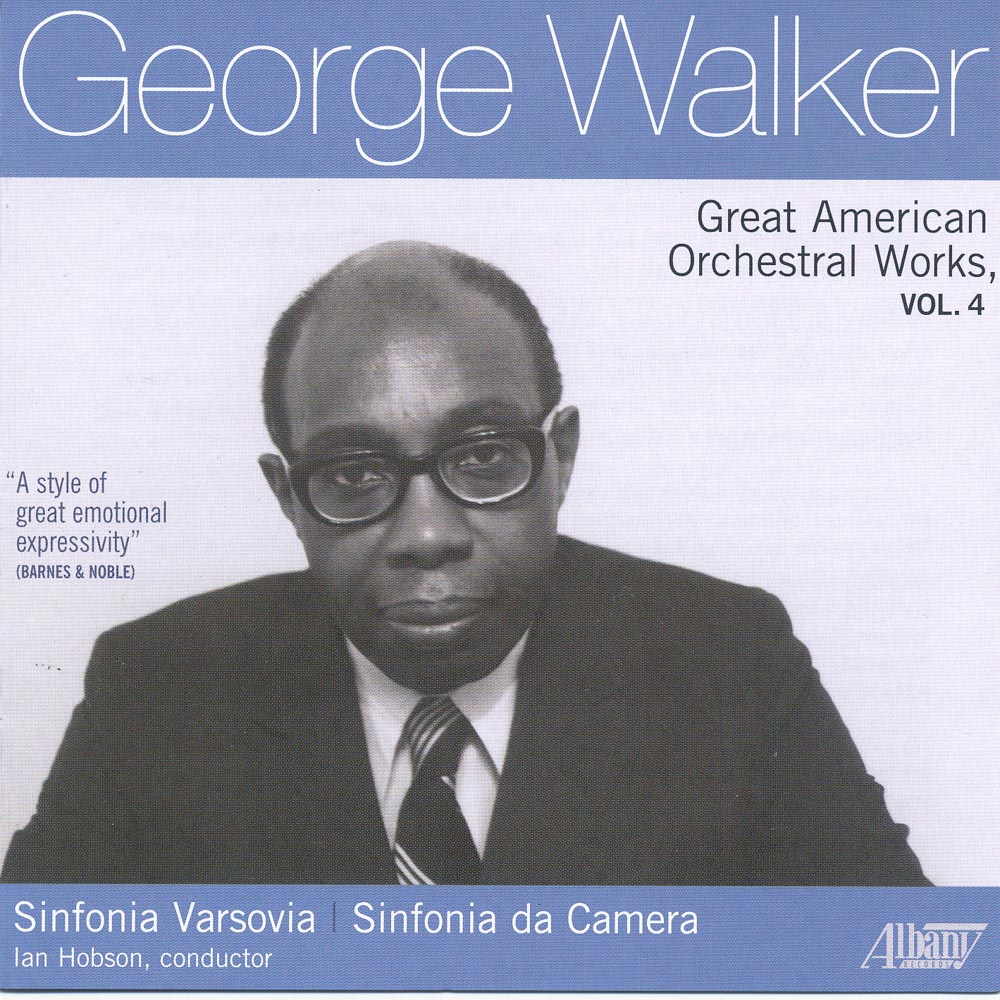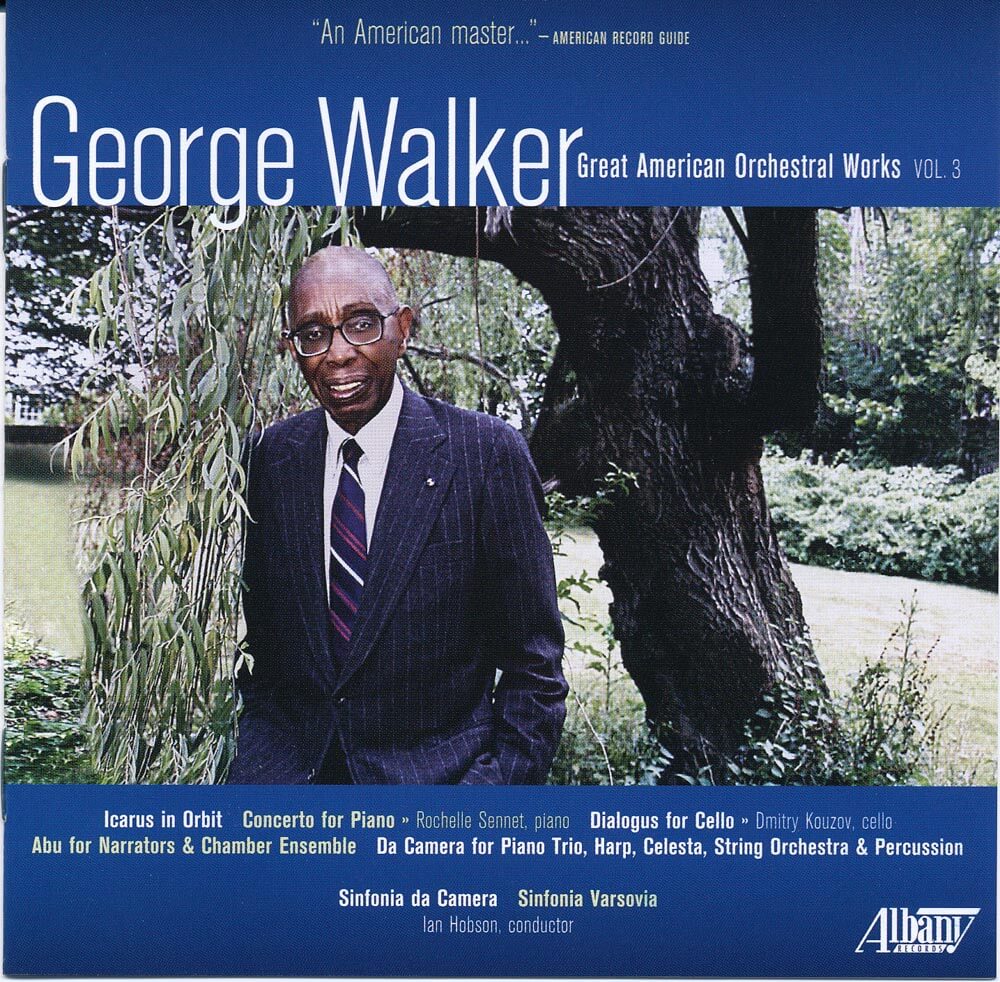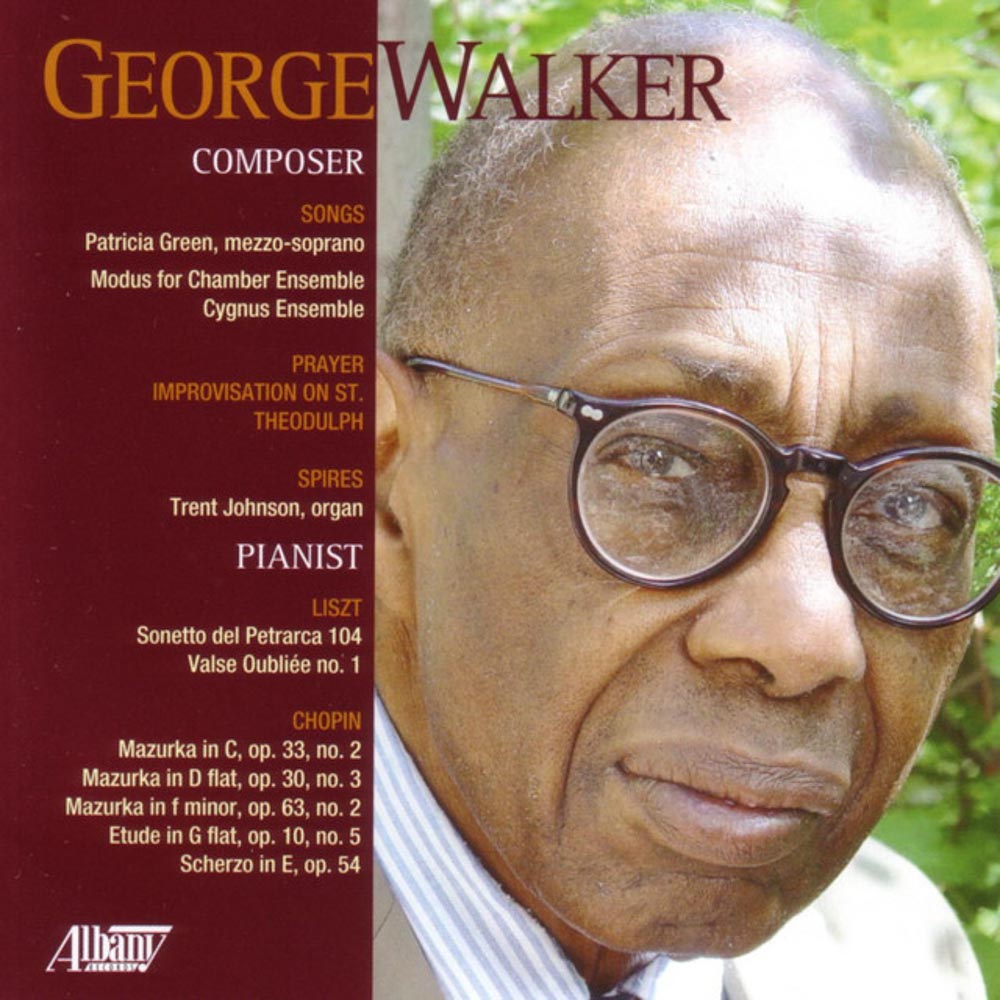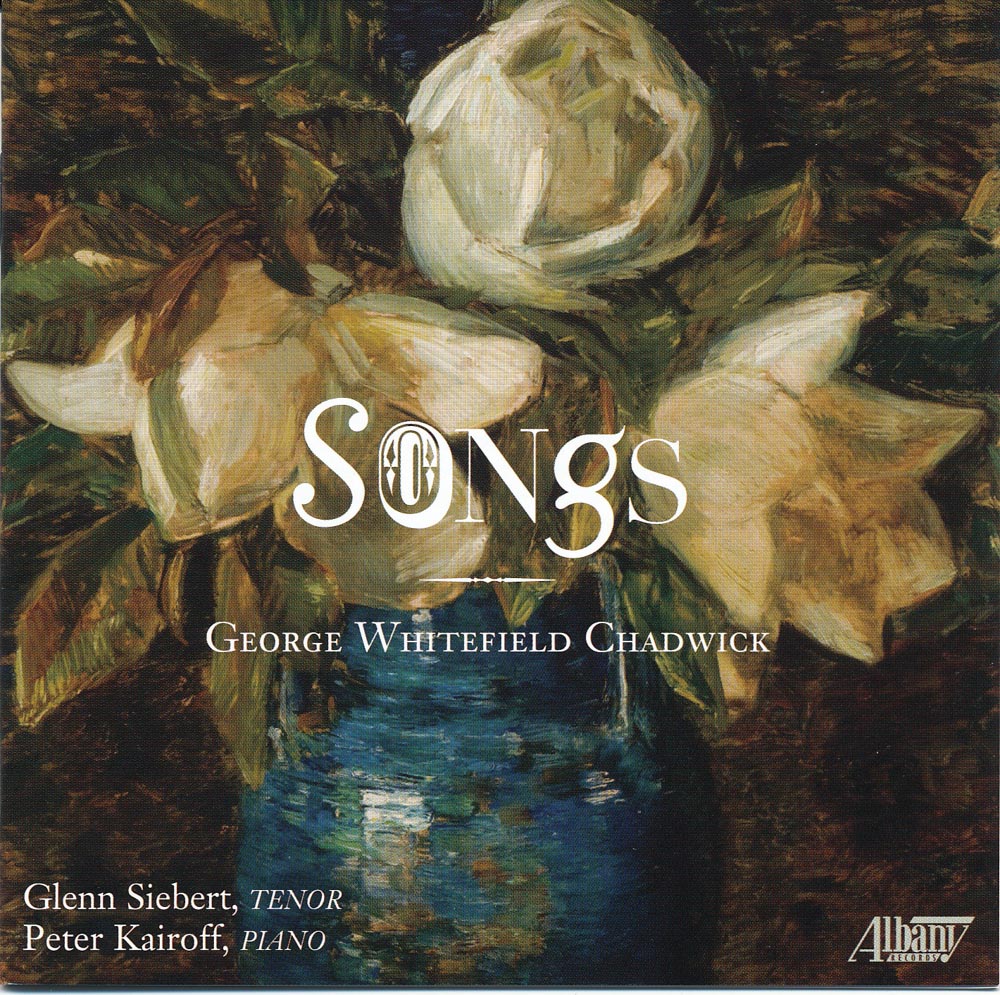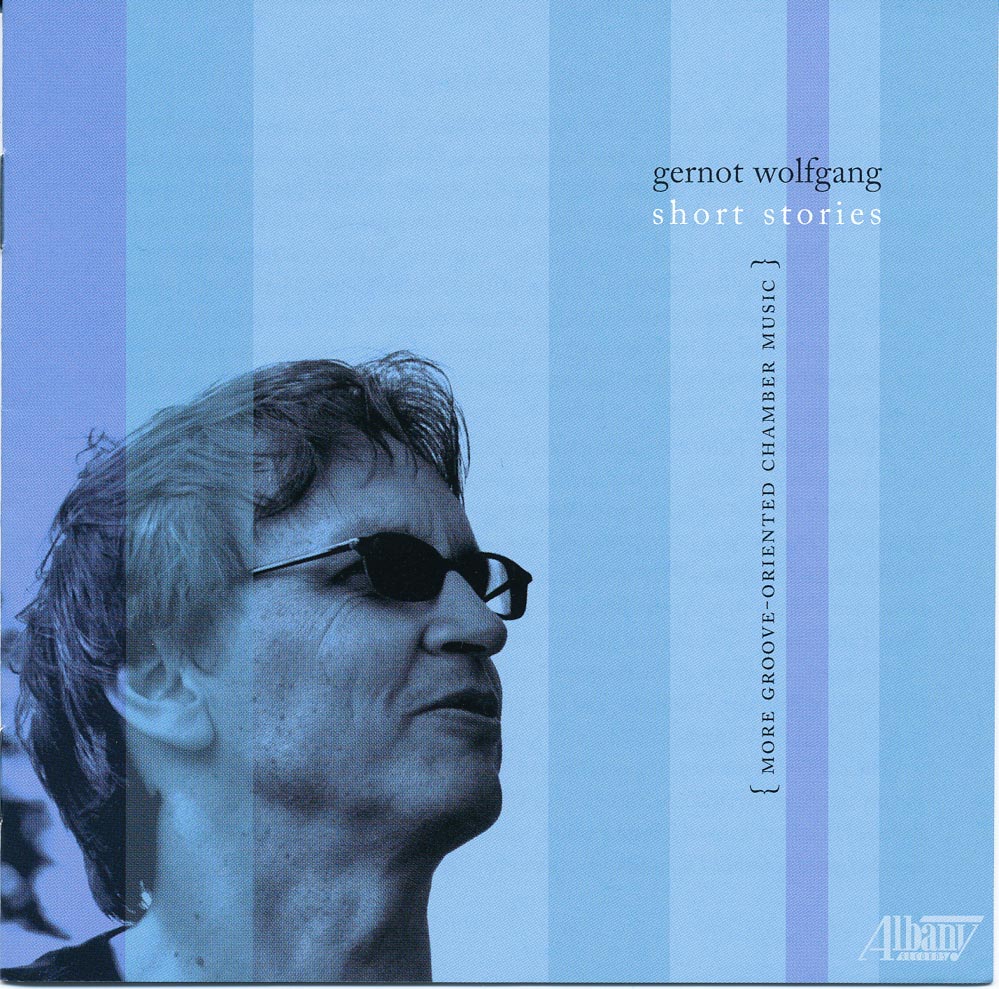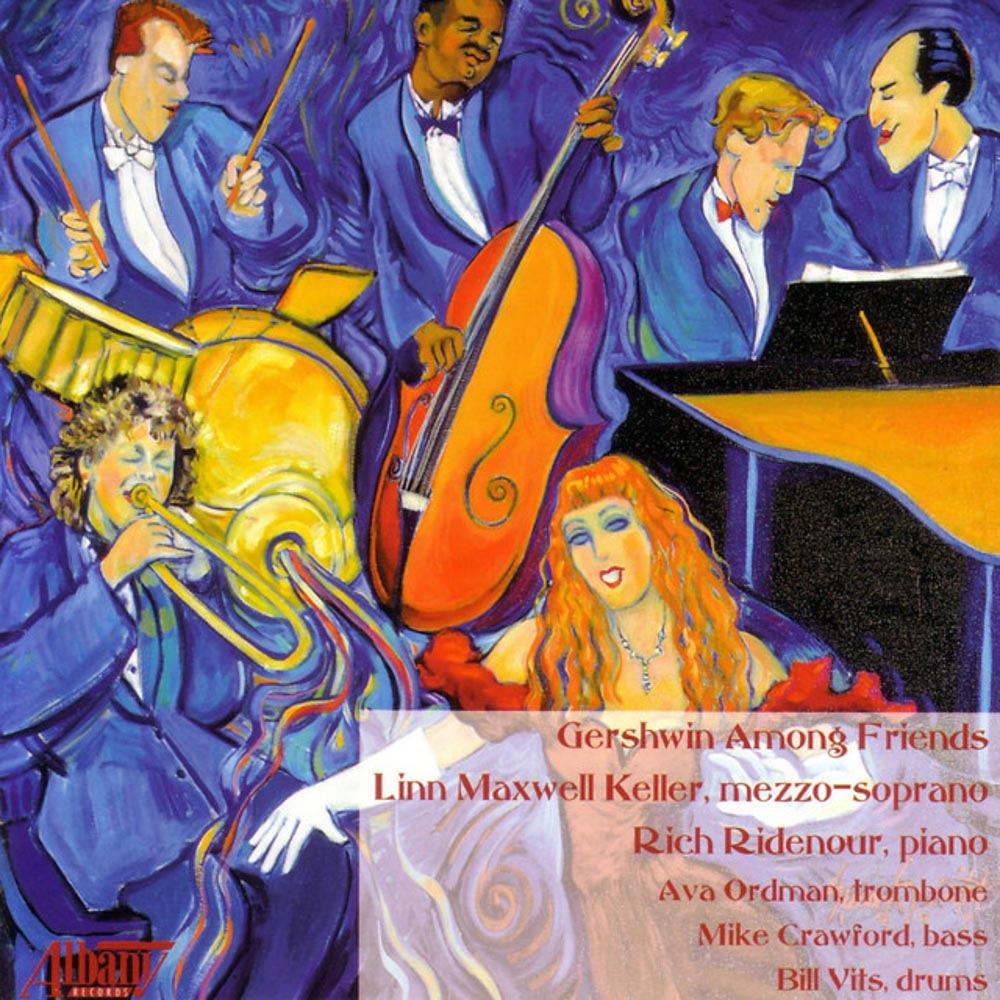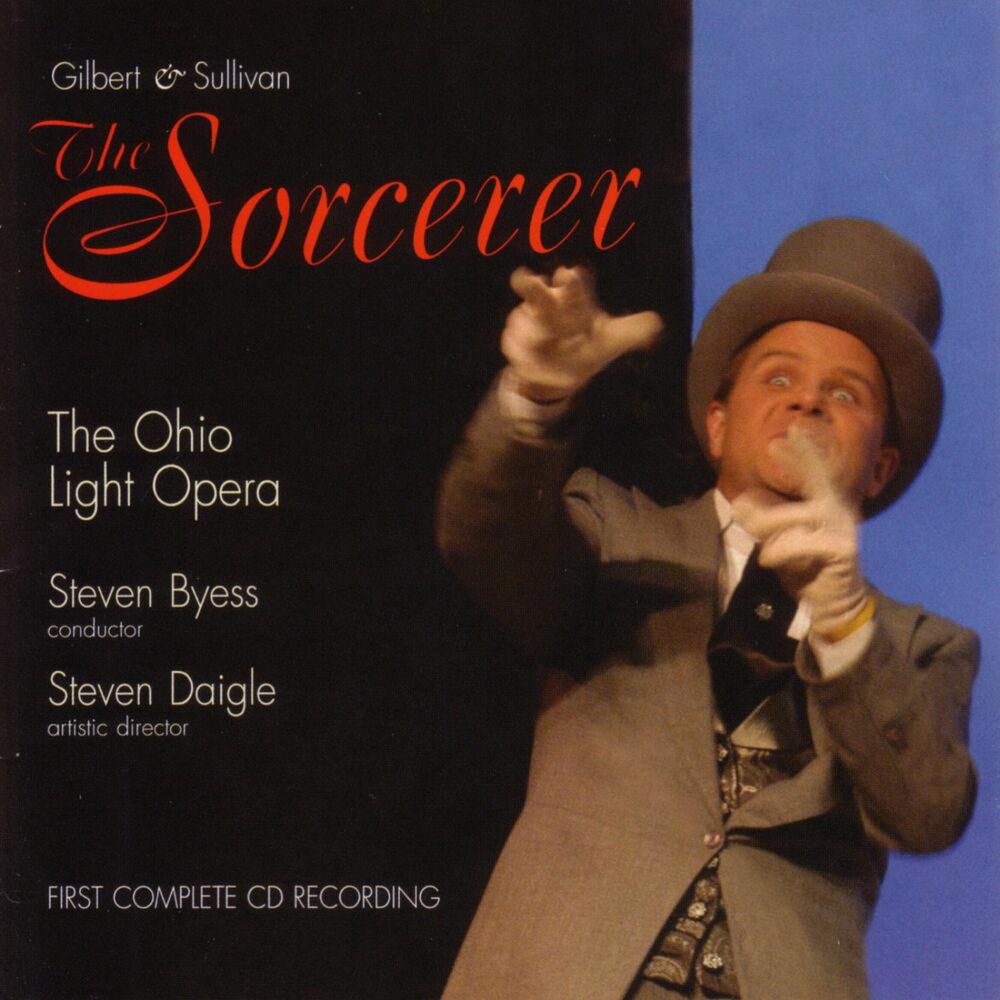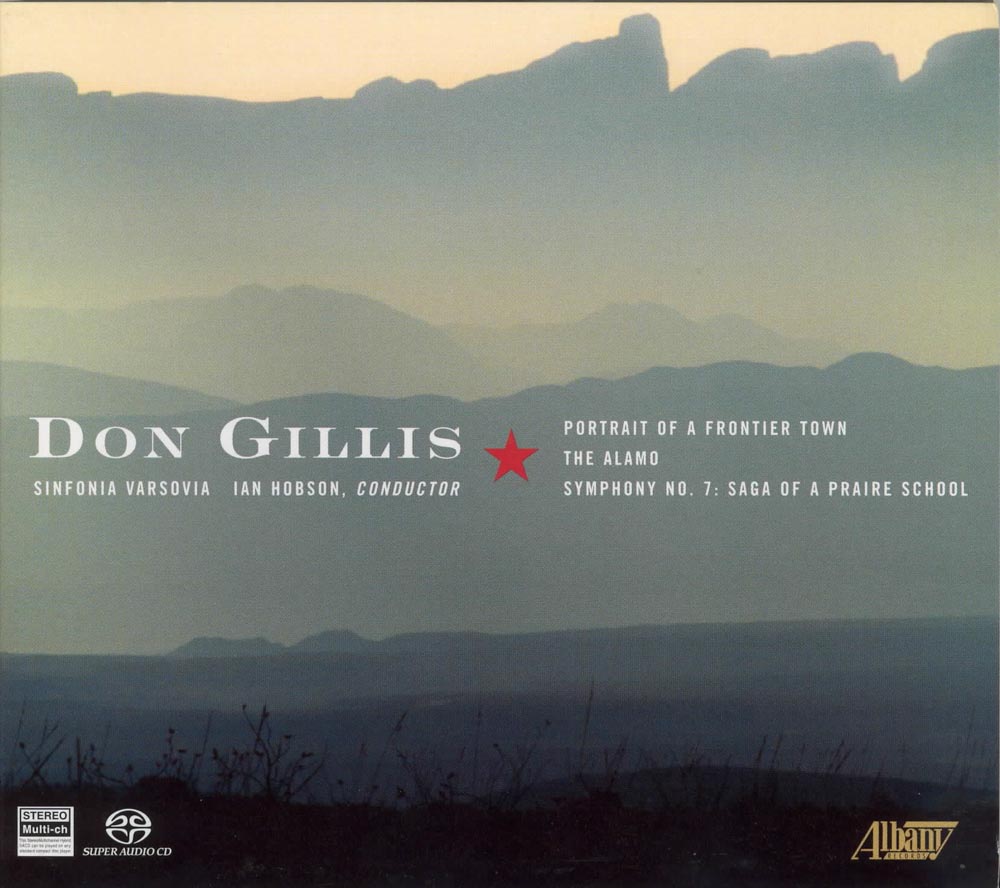Catalog #: TROY1523
Release Date: December 1, 2014ChamberSoprano Mary Elizabeth Southworth, flutist Danielle Hundley, clarinetist Marianne Breneman, and pianist Philip Amalong, formed the ensemble Conundrum in 2005. The group's name suggests both their unusual ensemble and also their openness and need to experiment with adventurous programming. After more than a decade of delighting audiences with their discoveries of repertoire for this ensemble and an active commissioning program, they have gathered the best of this music together for this their first recording. The result is From the Diamond Grid: first recordings of seven new works written or re-scored for the ensemble, plus one old favorite of theirs, which was modified for their instrumentation.
Catalog #: TROY1349
Release Date: May 1, 2012VocalBaritone Robert Peavler takes the opportunity with this recording to offer a program by American composers of the next generation from Charles Ives and John Duke (to name but two) carrying the torch forward as the new modern composers of art song. Kirke Mechem (b.1925) and Dominick Argento (b.1927) are a generation older than the other two composers includedÑThomas Pasatieri (b.1945) and Timothy Hoekman (b.1954). Robert Peavler is on the voice faculty at Eastern Michigan University. An active recitalist and soloist, Dr. Peavler consistently programs and champions new works by American art song composers. His collaborator, Arlene Shrut, is on the faculty of Juilliard and Manhattan School of Music and is an admired keyboard performer.
Catalog #: TROY0371
Release Date: February 1, 2000ChamberLeo Kraft is professor emeritus of the Aaron Copland School of Music at Queens College. He studied composition at Queens College and at Princeton University. He also studied in Paris with Nadia Boulanger. His From the Hudson Valley was commissioned by a consortium of 20 flutists from the National Flute Association and received its premiere on August 15, 1998 at their annual convention in Phoenix. Godfrey Schroth was a pupil of the American composer Paul Creston. He first came to attention in 1959 when his Piano Quartet won a major prize and was performed by the Phoenix Quartet. He describes his Spring in Bucks County as "a challenge to both the pianist and the flutist, who must play three instruments." The suite was premiered at the Philadelphia Art Museum in 1974. Its three movements are Equinoctial Dances, River Willows and Fields of May. Eric Ewazen was born in Cleveland, Ohio and studied under Samuel Adler, Milton Babbitt, Warren Benson, Gunther Schuller and Joseph Schwantner at the Eastman School, Tanglewood and the Juilliard School where he has been a member of the faculty since 1980. His Ballade, Pastorale and Dance was premiered at Aspen in July 1993.
Catalog #: TROY1750
Release Date: November 1, 2018OrchestralTaken from recordings of live concerts, the Frost Symphony Orchestra offers works by five American composers including Ellen Taaffe Zwilich, Paul Creston, Lansing McLoskey, Dorothy Hindman, and Scott Stinson. For the Zwilich, the orchestra is joined by flutist Trudy Kane, now on the faculty of the Frost School of Music, after retiring from the position of principal flutist of the Metropolitan Opera Orchestra. World-renowned saxophonist Dale Underwood is the soloist for the Paul Creston concerto.
Catalog #: TROY0480
Release Date: October 1, 2001ChamberRichard Danielpour writes: "I met Kenneth Fuchs some 20 years ago at the Juilliard School when we were being interviewed for the master's program by an auspicious panel of composers: Milton Babbitt, Elliott Carter, David Diamond, Vincent Persichetti and Roger Sessions. I was impressed by my initial conversation with him and happy that we each had been accepted into the program. I remember his very first string quartet as one of the few works of substance that I heard by a fellow composer during my six years there. Many years later we found ourselves at another school - the Manhattan School of Music. This time Ken was Dean of Students, as I took my place on the composition faculty. This happy confluence of appointments gave me the opportunity again to become acquainted with his music. The fourth quartet displays a formidable sense of craft and imagination with the utmost economy. It is perhaps the most powerful of all his works. The third quartet, with its undertones of Whitman, is at once the darkest and most virtuosic. Unfolding with great assurance, it has a muscular quality that reminds me of the American composers Ken admired so much when he was a student - Schuman, Mennin and Copland. Nonetheless, this third quartet, like the other two represented here, sings with its own voice from the first moment to the last. The second quartet is almost impressionistic, but it is never without the clarity of purpose that is a hallmark of his writing. The composer who is able to evoke joy, tenderness, humor, wildness and a sense of the tragic coherently within the same work does many of us a great service: he reminds those of us who love music why we continue to embrace it as an integral part of our lives. I have been privileged to know Kenneth Fuchs over the years and will be delighted to give this disc an honored place in my collection of much-loved CDs. That we are fortunate to have such extraordinary performances of these works by the American String Quartet is an added gift."
Catalog #: TROY1794
Release Date: November 1, 2019ChamberDon Walker's esthetic stems from the example of Charles Ives. Like Ives, Walker prefers to embrace all styles, as long as they produce music that is original, expressive, and involving for the listener. Many of the works on this recording date from the 1980s. During this time, Walker was often influenced by the Post Modern esthetic, which seemed to be taking over from Serialism and Chance Music. The music is lyrical, tonal, and often manifests jazz and world music influences. This is Walker's fourth recording for Albany Records.
Catalog #: TROY0924
Release Date: April 1, 2007ChamberWilliam Hill has been critically acclaimed as a composer, soloist, visual artist, recording artist and conductor. Currently he is Principal Timpanist with the Colorado Symphony and teaches composition and counterpoint at Denver University's Lamont School of Music. Mr. Hill has served as a composer with the Ohio Chamber Orchestra, National Music Festival, the Colorado and Denver Symphonies, and the Nova Series of Salt Lake City. On a trip with his wife Natalie to Ocracoke Island in the Outer Banks of North Carolina and observing the teeming water life, Natalie remarked, "Wow, check out those funky little crustaceans," and the inspiration for the first work was born, reflecting not only the literal ebbs and flows of the tides, but of the impact made on all creatures by the changes in season and the pacings of life in general. Aurora Borealis, featuring the renowned James J. Pellerite, is an impressionistic tone poem depicting the icy monochromatic stillness of the far North, with gradual hints of color developing into more subtle shadows of the spectrum as the piece evolves. Seven Abstract Miniatures is based on pen and ink sketches by the composer, and shows the interrelationships that can exist between music and art (such as Pictures at an Exhibition).
Catalog #: TROY1449
Release Date: November 1, 2013ChamberBorn in Berkeley to a mother of Peruvian/Chinese ancestry and a father of Lithuanian/Jewish descent, Gabriela Lena Frank explores her multicultural heritage most ardently through her compositions. Franks has traveled extensively throughout South American and her pieces reflect and refract her studies of Latin-American folklore, incorporating poetry, mythology and native musical styles into a western classical framework. Winner of a Latin Grammy and nominated for Grammys as both composer and pianist, Ms. Frank holds a Guggenheim Fellowship and a USA Artist Fellowship. This disc includes four works composed over a seven-year period and all feature the piano one for solo piano; one for flute and piano; another for flute, clarinet and piano; and one for piano quintet, beautifully performed by Ensemble MEME and pianist Molly Morkoski.
Catalog #: TROY1629
Release Date: August 1, 2016InstrumentalComposer, flutist and now harpist Gary Schocker has written more than 125 works for the harp -- surely a record for a contemporary composer. The esteemed harpist Emily Mitchell has been an advocate, performer, and champion of Schocker's music from the beginning. As she says, "He writes for the harp as a singing instrument, not unlike the flute. Instead of busily accompanying, or traditional right hand melody, left hand harmony, both hands shape the line." The works on this recording were composed between 1993 and 2010 and represent more than 25 years of collaboration between composer and harpist -- a fruitful collaboration that has so far produced four discs. This recording, re-released on Albany Records, now brings all recordings of Gary Schocker's harp music on one label: two discs of his Christmas music for harp; Changes, released in 2016, and now Garden in Path.
Catalog #: TROY1286
Release Date: August 1, 2011InstrumentalA unique musician, composer-pianist Gary Smart composes and improvises a music that reflects an abiding interest in Americana, world musics and jazz, as well as the Western classical tradition. He is a professor of music at the University of North Florida. This recording is unedited abstract improvisations. Though the collection is unified stylistically, it features considerable conceptual variety. Some of the improvisations stress gestural and textural material, while others emphasize motor rhythms and still others are harmonically inspired. Two pieces are for piano and radio Ñ improvisations with "found sound materials" on the radio.
Catalog #: TROY0475
Release Date: April 1, 2002InstrumentalWilliam Bolcom has said: "Curtis Curtis-Smith is one of the best-kept secrets in contemporary music. It is high time that listeners and musicians alike become acquainted with this music of passion and humor, intellectual agility and disarming emotional directness. I have long been its advocate to our best performers, who have played it enthusiastically worldwide, and I envy anyone who is becoming acquainted with it for the first time." C. Curtis-Smith (Curtis O.B. Curtis-Smith) was born in Walla Walla, Washington, studied at Whitman College, Northwestern University, the University of Illinois and at Tanglewood with Bruno Maderna. He has taught composition at the University of Michigan and is currently Professor of Music at Western Michigan University in Kalamazoo. His Great American Symphony was premiered in 1982 by the Kalamazoo Symphony Orchestra. The audacious title is as mischievous as it is ridiculous, and as American as a slick Madison Avenue advertising slogan. In the music, there are allusions to sundry aspects of Americana, from New Orleans jazz to acid rock; from gospel harmonies to boisterous marches to quaint southern folk hymns and Broadway show tunes. The composer writes: "On one level, the piece may be heard as fun and games entertainment, while on another it may be heard as an ironic and satirical commentary on the very tunes and styles it purports to trifle with. The piece has certainly enjoyed widely diverse reactions, from those finding it a masterpiece to those thinking it a travesty. Ross Lee Finney called it 'a controversial piece' and David Diamond, while finding the title a 'happy impertinence', admitted to lacking 'the requisite sense of humor about the title'. Another listener objected to my 'irreverent' treatment of The Star Spangled Banner in the last movement. I have never before, nor since, written such a brazen, outlandish, ill-behaved piece - yet GAS! is not malicious; it's more like a clown working things into his act."
Catalog #: TROY1751
Release Date: November 1, 2018ChamberViolinist Igor Kalnin and pianist Rochelle Sennet founded Duo MemDi to perform music that embraces the diversity of world cultures. All of their live performances are from memory, hence the name Mem (memory) Di (diversity). This, their debut recording, includes two commissioned works and highlights a few of the many approaches to incorporating folk music elements in modern classical music. Violinist Igor Kalnin has performed internationally as a soloist, chamber musician, and an orchestra leader. He is on the faculty at Luther College and concertmaster of the Sinfonia da Camera. He received degrees from the Balakirev Music College, the Glinka State Conservatory, Yale, and Michigan State University. Pianist Rochelle Sennet has established herself as a well-known performer, teacher, and scholar. She studied at the San Francisco Conservatory, the University of Michigan, Texas Christian University, and the University of Illinois. She is the recipient of numerous awards including co-winner for the Krannert Center Debut Artist Competition. Dr. Sennet is on the faculty at University of Illinois at Urbana-Champaign.
Catalog #: TROY0678
Release Date: August 1, 2004VocalHoward Stokar writes: "Religion, specifically the Judeo-Christian continuum, is integral to Charles Wuorinen's view of the world and his own work as a composer. The Latin Mass for the Restoration of St. Luke in the Fields was written to celebrate the rededication of a church in lower Manhattan which had burned to the ground on the night of March 6, 1981, and was subsequently rebuilt. The work is divided into seven sections: the first and last are purely instrumental, the central five compose the Kyrie, Gloria, Sanctus/Benedictus, Angus Dei and a Communion motet. The motet is a setting of words from St. John which are inscribed on the rood screen of the original church. The Mass is a central work in Wuorinen's catalog. It is actually a Missa Brevis as it does not include the Credo. The reason for this is practical: St. Luke's requires congregational singing of the Credo. The mass was performed for the first time on November 20, 1983 at St. Ignatius of Antioch, New York City. A Solis Ortu and the reworking of the Josquin motet Ave Christe for piano were composed for Stephen Fisher, then President of C.F. Peters Corporation. Fisher, a fine amateur photographer, had given Wuorinen a photo of the sun rising over Yosemite National Park. In response, Wuorinen wrote the lovely short a cappella antiphon, A Solis Ortu, which is based on a related chant in the Liber usualis "From the rising of the sun to the going down of the same, the name of the Lord is to be praised". The first performance took place as part of the Solemn Mass at St. Ignatius of Antioch Episcopal Church conducted by Harold Chaney on December 30, 1990. Ave Christie is a re-casting of a portion of a motet by Renaissance master Josquin des Prez. Unlike Busoni, whose transformations of Bach chorales into late 19th century virtuoso showpieces are designed to display the talents of the performer, Wuorinen presents the Josquin simply, with elegant octave doubling, and registeral changes. He transforms the motet into a choral-like work for piano". About the main work on this disc, Genesis, Michael Steinberg writes: "Herbert Blomstedt, Music Director (1985-1995) of the San Francisco Symphony, was not just the first conductor of Genesis; he was in an important sense, the inspiration and godfather of this powerful work. In one of his conversations with Charles Wuorinen during the four years, 1985 to 1989, that he, Wuorinen, was the San Francisco Symphony's composer-in-residence, Blomstedt said 'Wouldn't it be nice if someone wrote a new Genesis' or words to that effect. Moreover, having conducted several of Wuorinen's instrumental works - Movers and Shakers, The Golden Dance, Another Happy Birthday, the Piano Concerto No. 3, and Machault Mon Chou - Blomstedt was curious to see what effect the challenge of writing a new work for chorus might have on the composer's musical language. From these exchanges came the impetus for Wuorinen to add his Genesis to the list - not large, but distinguished - of compositions on that subject by Haydn, Schoenberg and Milhaud."
Catalog #: TROY1883
Release Date: December 1, 2021InstrumentalGeorge Rochberg's Caprice Variations were composed in 1970, and incorporated musical elements that ignited his passions. The work began to germinate in 1969, during an accidental encounter with Brahms' Opus 35 variations on Paganini's famous caprice and this led directly to his Third String Quartet. Eight variations of the Caprice are expanded and revisited elements of this string quartet. Requiring considerable musical, artistic, and technical prowess, the Caprice Variations are very rarely performed. Born in 1995, French violinist Léo Marillier studied at the New England Conservatory and the Paris Conservatory, as well as the Royal Conservatoire in The Hague. The winner of numerous competitions, Marillier has performed with noted chamber musicians and ensembles in the U.S., Europe, and the U.A.E. and has appeared as a soloist with orchestras in Europe. He is the artistic director of the Inventio Festival in Paris. He is a member of the Diotima Quartet.
Catalog #: TROY0523
Release Date: September 1, 2002InstrumentalAlbany Records continues its series of recordings of George Walker, who has achieved international recognition as a pianist and as a composer. Walker has published more than 80 works for every medium except opera. He was inducted into the American Academy of Arts and Letters in 1996. With his inclusion into the American Classical Music Hall of Fame in 2000, he became the only living pianist-composer to receive this honor. The four piano sonatas, the brilliant and dynamic Piano Concerto and other shorter works that he has composed have expanded the standard repertoire of classical piano literature. Nevertheless, his devotion to the music of the great composers of the past remains undiminished, as evidenced by this superbly played recording.
Catalog #: TROY0117
Release Date: July 1, 1994InstrumentalGeorge Walker was born in Washington, DC on June 27, 1922 of West Indian-American parentage. He graduated from high school at the age of 14, attended Oberlin College and the Curtis Institute of Music where he studied piano with Rudolf Serkin and composition with Rosario Scalero. His auspicious debut at Town Hall in 1945 was described in the New York Times as "notable...an authentic talent of marked individuality and fine musical insight...a rare combination of elegance and sincerity...an understanding, a technical competence and a sensitiveness rarely heard at debut recitals." Walker obtained his Doctor of Musical Arts Degree from Eastman and went on to study in France with Nadia Boulanger on Fulbright and John Hay Whitney Fellowships. His compositions have been played by virtually every major orchestra and chamber orchestra in the United States. This recording uniquely showcases the pianist as composer-composer as pianist as Walker performs his Sonata No. 1.
Catalog #: TROY0252
Release Date: August 1, 1997InstrumentalThe great American composer George Walker, who won the Pulitzer Prize for music in 1996 with his composition, Lilacs for Voice and Orchestra began his musical career as a pianist. He was born in Washington, DC in 1922. He began to take piano lessons when he was five years old. He graduated from Oberlin at 18 and went on to Curtis where he studied piano with Rudolf Serkin and composition with Rosario Scalero. In 1945 he made his acclaimed New York debut in Town Hall in a concert that was sponsored by Mr. And Mrs. Efrem Zimbalist. Two weeks later, he appeared with the Philadelphia Orchestra as soloist in the Rachmaninoff Piano Concerto No. 3 under Eugene Ormandy. Subsequently he appeared with many major Orchestras performing the core of the romantic repertoire. In 1950, he became the first black instrumentalist to obtain major concert management. In 1953, he became the first black artist to make a major concert tour of Europe, where he played to resounding acclaim in seven countries. Here we have the composer as performer in works that have long had special meaning for him. This is a unique, warm, lovely disc. Please note that it is HDCD encoded for your customers who are looking for the latest in digital technology.
Catalog #: TROY0136
Release Date: October 1, 1994ChamberGeorge Walker, the Pulitzer Prize winning composer, began to study composition seriously after graduating from Oberlin College. After having been accepted at the Curtis Institute of Music in Philadelphia to study piano with Rudolf Serkin, he was accepted into the composition class of Sosario Scalero, teacher of Samuel Barber and Gian-Carlo Menotti. He completed his first string quartet before embarking on a career as a concert pianist. In 1956 he became the first black recipient of the Doctor of Musical Arts Degree from the Eastman School of Music. Although his degree was in piano (he never studied composition at the Eastman School), he composed his Concerto for Trombone and Orchestra, Second Piano Sonata, and Sonata for Cello and Piano while residing in Rochester, New York. In 1957, as a Fulbright Fellow in piano, he continued to compose under the guidance of Nadia Boulanger in Paris. Returning to the United States in 1958, he began to amass a catalog of more than 70 published works that have been performed by renowned ensembles and conductors throughout the United States, Europe, and Asia. The composition dates of the works on this recording range in date from the sixties to the mid-eighties and present a variety of forces. There is a work for organ, Variations for Orchestra and a cantata for soloists, boys choir and chamber orchestra. The cantata is performed by the Boys Choir of Harlem on this recording.
Catalog #: TROY1478
Release Date: March 1, 2014Albany Records continues its series of recordings devoted to the artistry of esteemed composer and pianist George Walker. This recording includes Walker performing Beethoven's Fifth Piano Concerto in a thrilling live performance from 1967. Coupled with the Beethoven is Walker's Violin Sonata performed by the composer and his son, Gregory for this recording. Gregory Walker, a professor at the University of Colorado is artistic director of the Colorado NeXt Music Fest and a champion of contemporary music.
Catalog #: TROY1370
Release Date: September 1, 2012ChamberThis recording continues the series on Albany Records of the music of the distinguished composer George Walker, who celebrated his 90th birthday June 27. Walker is an acknowledged American Master whose orchestral works have been played by every major American orchestra. He is the recipient of seven honorary doctorate degrees and has been inducted into the American Classical Music Hall of Fame. Included on the CD are his Piano Sonata No. 3 written in 1976, his Music for 3 composed in 1971, his Piano Sonata No. 5 composed in 2003 and numerous songs. Walker's music is given superb performances by a sterling group of artists.
Catalog #: TROY1178
Release Date: March 1, 2010OrchestralThe most recent work on this recording, the Concerto for Violin and Orchestra, was completed in 2008 and features the composer's son as soloist. The composer observes that "The special qualities of all of the works on this cd are captured skillfully by the conductor Ian Hobson and the Sinfonia Varsovia." This recording is the second volume on Albany Records that features this esteemed composer's orchestral music.
Catalog #: TROY1430
Release Date: August 1, 2013OrchestralBorn in 1922, George Walker is an acknowledged American master whose orchestral works have been played by every major American orchestra. He is the recipient of seven honorary doctorate degrees and won the Pulitzer Prize in 1996 for Lilacs, which is one of the works on this compact disc. Two works, Sinfonia No. 4 and Movements for Cello and Orchestra are world premiere recordings. Ian Hobson, a champion of Walker's music is the conductor for this recording.
Catalog #: TROY1334
Release Date: February 1, 2012OrchestralThe most recent volume in the series on Albany Records devoted to the orchestral music of George Walker includes two concertos -- one for piano and the other for cello -- interspersed with works for large chamber ensembles and Icarus, commissioned by the New Jersey Youth Symphony in 2004. George Walker's music has been performed by every major American orchestra and many international orchestras, including those of Great Britain, Europe and South America. Recordings of his music appear on Sony, BIS, Klavier Centaur, Naxos and Albany Records, among others. Winner of the Pulitzer Prize in 1996, Walker has received commissions from the New York Philharmonic, Boston Symphony Orchestra, Cleveland Orchestra and the Philadelphia Orchestra. He is the recipient of six honorary doctoral degrees.
Catalog #: TROY0697
Release Date: February 1, 2005ChamberThe songs for voice and piano by George Walker are among the finest written by an American composer and are "as outstanding as they are varied" according to Fanfare Magazine. Modus for Chamber Ensemble was commissioned by the Cygnus Ensemble. It received its premiere in New York in March, 2001. The four movements are characterized by recurring motives and highly rhythmical sections of great intensity. The title, Modus, refers to the elegant techniques used to transform and unify the movements. The Prayer for Organ was composed in 1996, 50 years after Walker's famous Lyric for Strings, a memorial to his grandmother, was written. The similarity between these two works lies in the use of contrapuntal techniques. The Improvisation on St. Theodulph is a fantasia on the melody stated before the work begins. The Prayer and the Improvisation were commissioned by the regional chapter of the American Guild of Organists in Washington, D.C. Spires was commissioned for performance by Dr. Mickey Thomas Terry at the Convention in Denver of the National Chapter of the American Guild of Organists in 1998.
Catalog #: TROY1387
Release Date: December 1, 2012PianoGeorge Whitefield Chadwick was one of the most significant and influential composers in the United States in the late 19th and early 20th centuries. Although best known for his orchestral compositions, he also wrote more than 100 songs for voice and piano in a wide variety of styles. The songs included in this recording, many recorded for the first time, demonstrate Chadwick's range of styles and subjects. They are creative, playful at times and filled with a distinctive sensitivity and intelligence. Tenor Glenn Siebert has appeared with many of the world's most acclaimed orchestras and has recorded extensively. He is on the faculty of the University of North Caroline School of the Arts. Pianist Peter Kairoff is on the faculty of Wake Forest University. He has performed throughout the U.S., Europe and China and has recorded music by 19th century American composers for Albany Records.
Catalog #: TROY1624
Release Date: April 1, 2016ChamberPassing Through is the third recording devoted to composer Gernot Wolfgang's chamber music compositions. Ever since Wolfgang became interested in contemporary classical music, the prospect of integrating grooves from musical styles such as jazz, rock & roll, pop, world music and electronica into his concert works has intrigued him. The works on this CD contain such grooves as the means of providing forward propulsion, generating additional energy, and also simply for the fun of it. Gernot Wolfgang has been described by Gramophone as a composer with a "winning sonic arsenal," while jazz legend Dave Brubeck characterized his music as being of "unconventional beauty." Born in Austria, Gernot Wolfgang holds degrees from Berklee College of Music, the University of Music in Graz, and the University of Southern California. The recipient of numerous commissions, his music has been performed by major orchestras in the U.S. and Europe. He has taught at the University of Music in Graz and given masterclasses at UCLA, Texas Tech University, University of Music in Vienna and Instrumenta Verano in Oaxaca. He also works as an orchestrator in the film and TV music industry. A stellar group of Los-Angeles based musicians perform on this disc, including Judith Farmer, bassoon; oboist Jennifer Johnson; pianists Joanne Pearce Martin and Robert Thies; and the Eclipse and New Hollywood String Quartets.
Catalog #: TROY1248
Release Date: February 1, 2011ChamberAs on the previous release of Gernot Wolfgang's music on Albany Records, rhythms (grooves) from musical styles such as jazz, rock & roll, pop, world music and electronica play important roles within his chamber music compositions. While they rarely stretch through an entire piece, they provide energy and forward motion in between the free flowing rubato passages. Active in the Los Angeles film and TV music industry, Wolfgang has served as composer-in-residence with the Beverly Hills International Music Festival where he curated a concert series featuring the chamber music of film/TV composers.
Catalog #: TROY0274
Release Date: January 1, 1998VocalEvery label that specializes in American music, at one time or other, does an album devoted to the music of George Gershwin; trying to come up with a disc that is unusual and interesting is the challenge. As the title suggests, all the musicians on this album are friends; the instrumentalists are all members of the Grand Rapids Symphony Orchestra. Just as George Gershwin was himself a product of diverse cultural influences, so his songs represent a variety of musical forms, styles and mediums. The collection on this disc spans the entire creative period of Gershwin's life, from The Real American Folk Song (written in 1918, and his first collaboration with his brother Ira) to the songs for the 1938 movie "The Goldwyn Follies," Love Walked In, I Love To Rhyme, and Our Love is Here to Stay, which were released after the composer's sudden death. Gershwin's friendships and alliances are evident in the songs as well. There are eight songs written for Fred Astaire and-or Ginger Rogers, two songs from the Broadway musical "Girl Crazy," (notable for the fact that the show was the Broadway debut of Ethel Merman and featured a pit Orchestra that included the likes of Glenn Miller, Jimmy Dorsey and Benny Goodman), and further selections which feature Linn Maxwell Keller with the musicians as well as the musicians alone.
Catalog #: TROY0814-15
Release Date: December 1, 2005OperaEager to capitalize on the 1875 success of Trial By Jury, impresario Richard D'Oyly Carte organized the Comedy Opera Company, Ltd., and commissioned Gilbert and Sullivan to write a comic operetta. Drawing upon various sources, Gilbert fashioned a plot dealing with the effects of a love potion on an English village. Though Gilbert finished his libretto by April 1877, Sullivan, despondent over the death of his brother Fred, finished the score barely in time for the mid-November premiere at London's Opera Comique. The Sorcerer, satirizing both Victorian customs and theatrical devices, was a success and ran 175 performances; this was to lead to the next collaboration, H.M.S. Pinafore. Once again, Albany is proud to present another wonderfully sparkling performance by the renowned Ohio Light Opera Company, the first complete CD set incorporating Gilbert's hilarious spoken dialogue. Those who have come to know and love the acclaimed series by this group are in for an absolute treat!
Catalog #: TROY0729
Release Date: December 1, 2004OrchestralIn an essay in the program booklet called Revelry's Ringmaster Ray Bono writes: "The gift of creating music that is immediately likable, that brings a smile to the listener's face on first gearing, is a gift not bestowed on all composers, not even all the great ones. But in 19th - century Europe such congeniality did shimmer in the works of composers like Offenbach, von Suppe and the Strausses. In 20th -century America, their counterparts included individuals who frequently alternated between the concert hall and the pop-culture domains of Broadway, Hollywood, radio and television - individuals ranging in renown from Gershwin and Bernstein to John Williams, Leroy Anderson, Ferde Grofe and Don Gillis. Donald Eugene Gillis was born in Cameron, Missouri and studied trumpet and trombone in school and by his early teen years was composing dance-band music. His family moved to Texas, where he earned his degrees at Texas Christian University in Fort Worth and North Texas University in Denton. Before moving to Manhattan in 1944 to serve as producer, scriptwriter and commentator for NBC radio programs (including those of the famed NBC Symphony Orchestra under Toscanini), the multitalented young man had already worked as a jazz musician, a band and symphony orchestra organizer, an arranger, a conductor and - for station WBAP in Fort Worth and then NBC in Chicago - a radio production director. Amid all this and while raising a family, he pursued an energetic composing career. His early works already point to Gillis's most memorable characteristic of all: an untrammeled love of the lighthearted, laced with a dislike for pomposity. As he himself put it, speaking of his household's musical preferences: 'We hate stuffed-shirtism in musicians, and phony artistry, and anything but the fact that music is a normal function of people's living. Gillis thrived during his New York decade with NBC. Following the 1954 retirement of his much-admired Toscanini (who called him 'Jeelee'), he went to Michigan where from 1958 to 1961, he was vice-president of the Interlochen Music Camp. He then assumed a succession of academic chairmanships at Southern Methodist University in 1967, the Dallas Baptist College in 1968, and in 1973, the University of South Carolina in Columbia. The composer appears to have been as unaffected and good-humored as the music he wrote. 'I am convinced,' Don Gillis once said about music 'that it is the heart which must speak - and not the brain alone.'" This says everything there is to say about the music on this disc, which will make a perfect gift for the music lover on your list for whom you have no idea what to get for Christmas. This is music which is well crafted and enjoyable. The gifted English pianist and conductor plays this music as if he has lived with it all his life. This is the first time the Symphony No. 4 has ever been performed, let alone recorded. There will be more of Gillis's music appearing in 2005.
Catalog #: TROY0833
Release Date: April 1, 2006OrchestralThis release of Don Gillis' music is especially important because it contains three of his most beloved works in their first commercial re-recordings since the classic 1950 LP's conducted by the composer. All of these works have that wonderfully bracing, great-outdoors sound that fans of Gillis thrill to. The common theme of the Old West runs through the entire program. Each of these works abounds in the terrific melodies, spicy harmonies and a strong narrative drive, which are all the musical fingerprints of this fine American composer. As in past releases, Ian Hobson and the Sinfonia Varsovia show a great affection for this music. If anything, Maestro Hobson matches Gillis' own energetic performances and even finds a bit more emotional gravity in The Alamo. On top of this is the excellent SACD surround sound that really brings out the orchestral colors hidden in these scores.
Catalog #: TROY0888
Release Date: November 1, 2006OrchestralThroughout his composing career Don Gillis's avowed goal was "to reach the people." And for him the surest way to do that was with "melodies that they could sing and tunes that even kids could whistle in Waxahachie or Dubuque." Born in rural Missouri, Gillis hailed from the same heartland as Virgil Thomson and Roy Harris. While still a teenager, he moved with his Depression-wracked family to Texas and it is with that iconic prairie land of cowboys and oilmen that he and his music are most often associated, thanks to works like Portrait of a Frontier Town, The Alamo and the ballet Shindig. A graduate of Texas Christian University and the North Texas State Teachers College, he pursued music with a vengeance, conducting, performing, arranging, instructing and cobbling ensembles together. Although the highlight of his professional career was producer of Arturo Toscanini's NBC broadcasts for ten years, he labored zealously at the great constant of his life, composing, with the three aspects of his personal credo - love of country, love of God, love of a good laugh - shining through piece after piece in his large output of works. This is especially true of his Symphonies. And it rings out loud and clear in the three comprising this CD - Symphonies 1 and 2, never commercially recorded before, and that bubble burst of orchestral mirth, Symphony No. 5 1/2, his best-known composition.
Catalog

©2024 Albany Records. All rights reserved. | Privacy Policy | Website by PARMA Creative.
